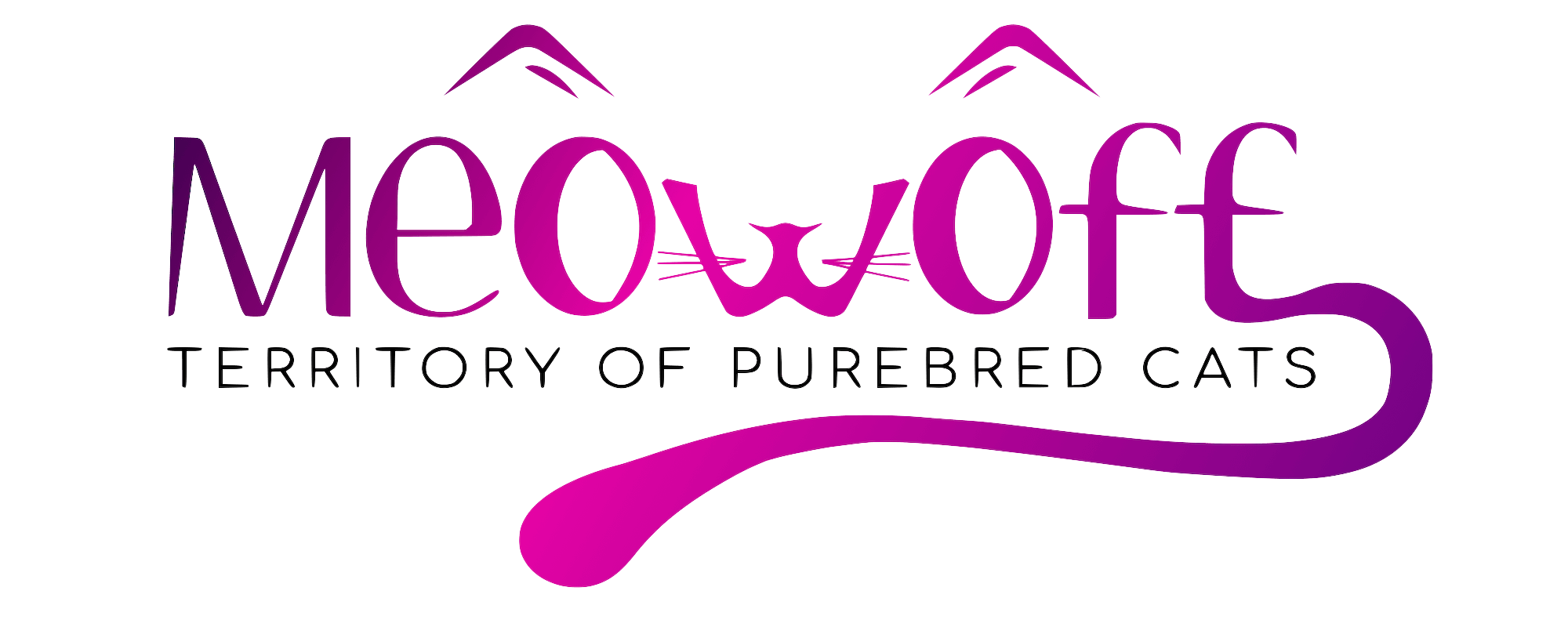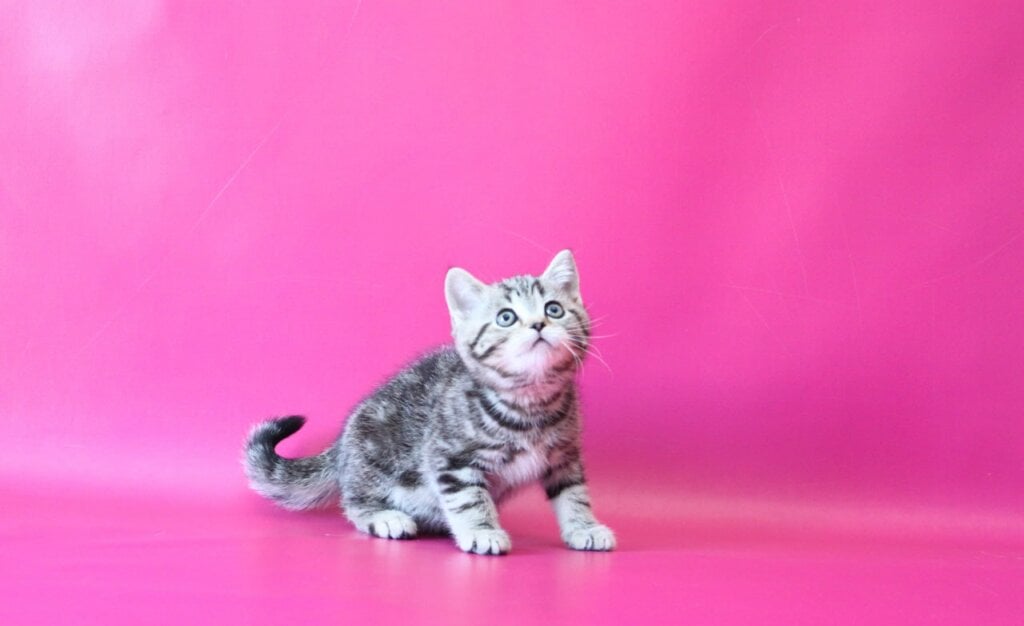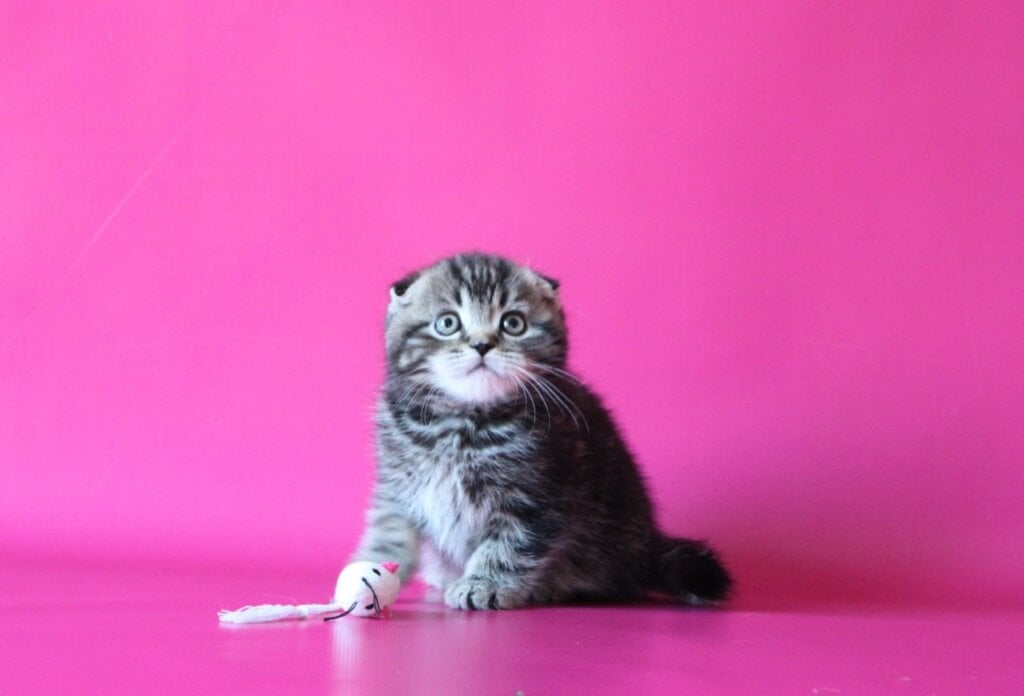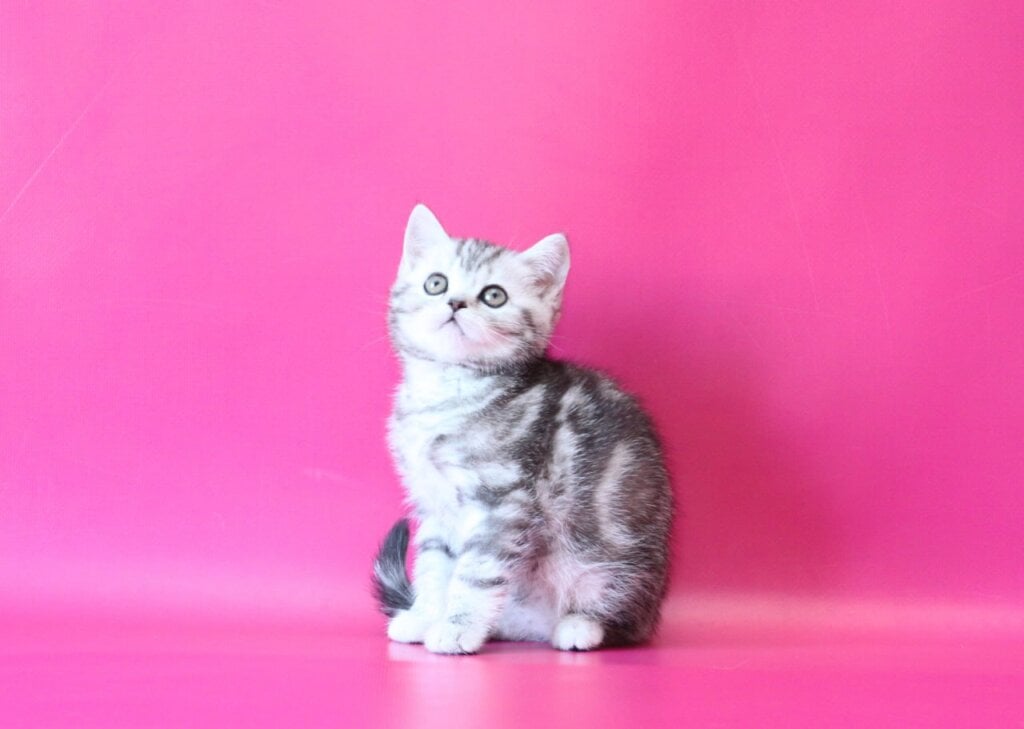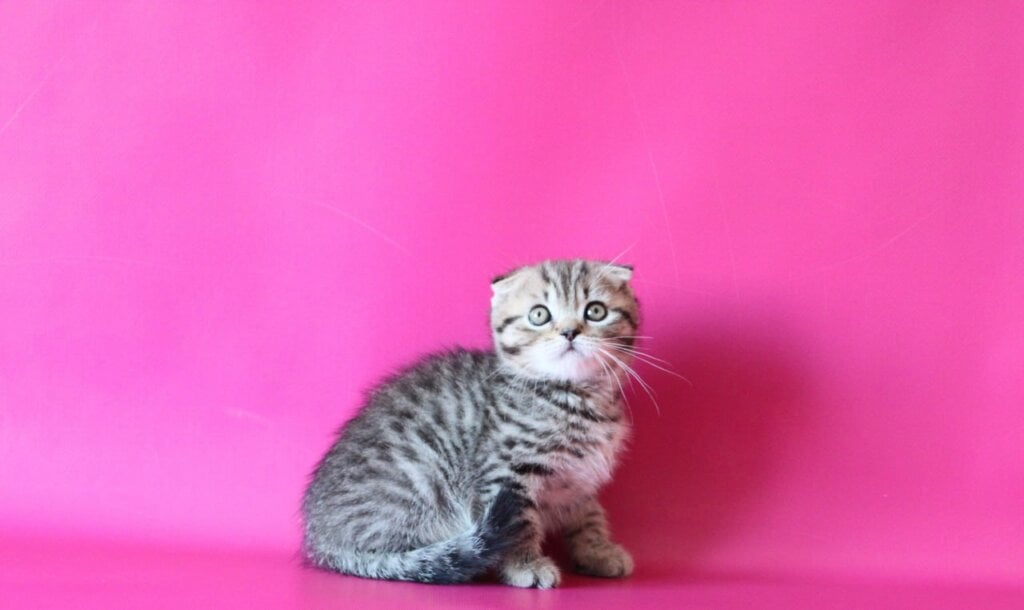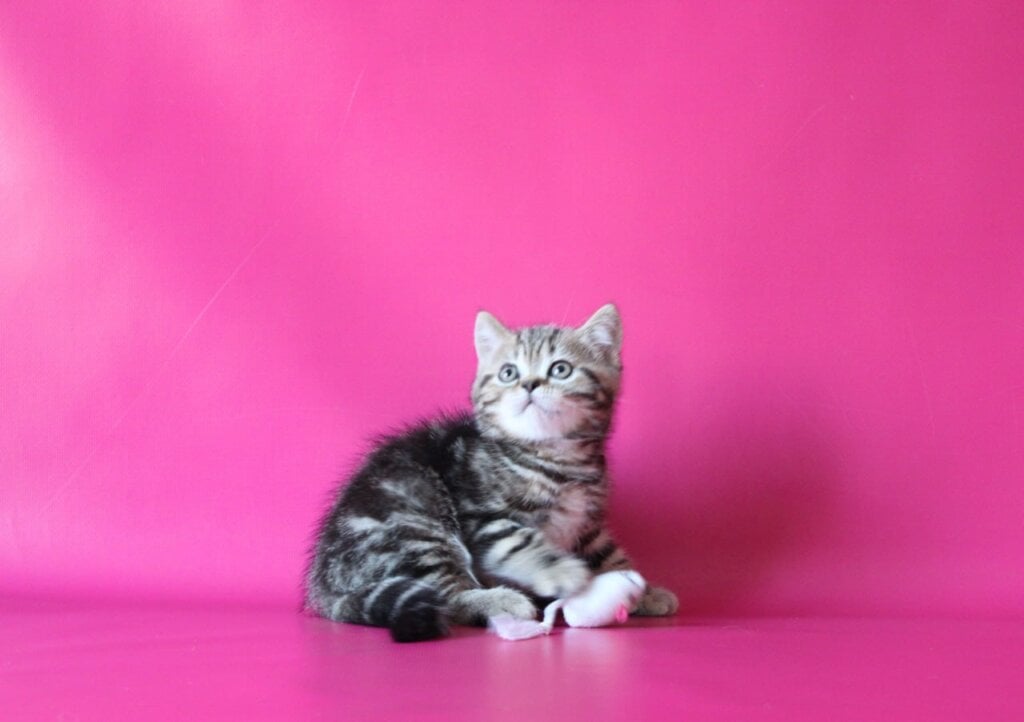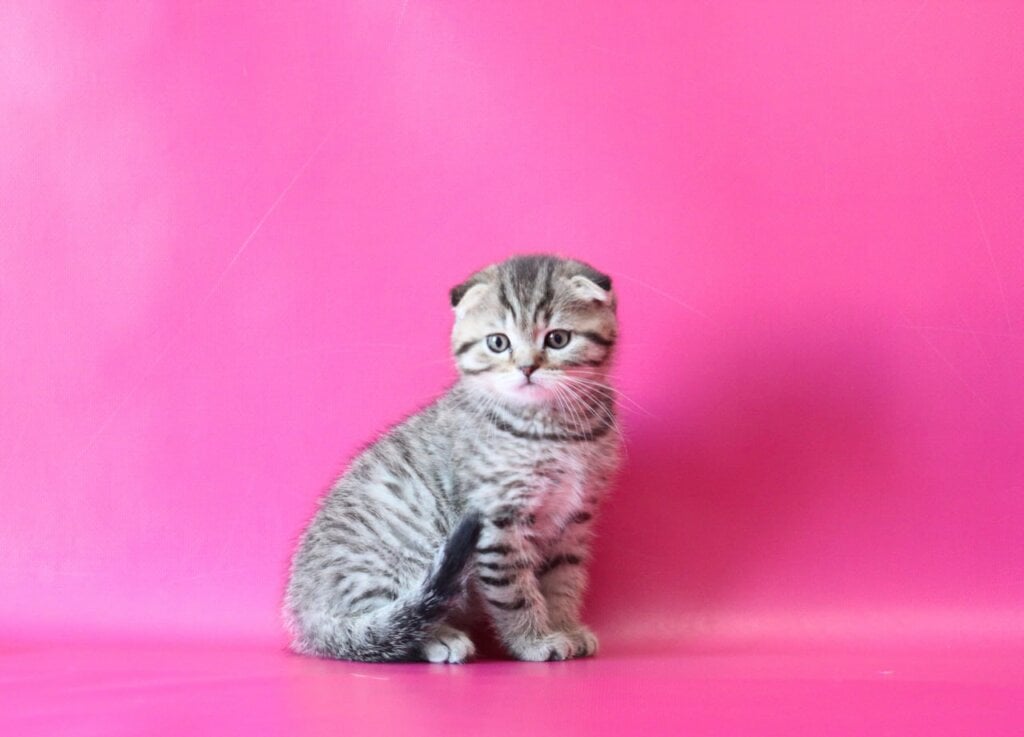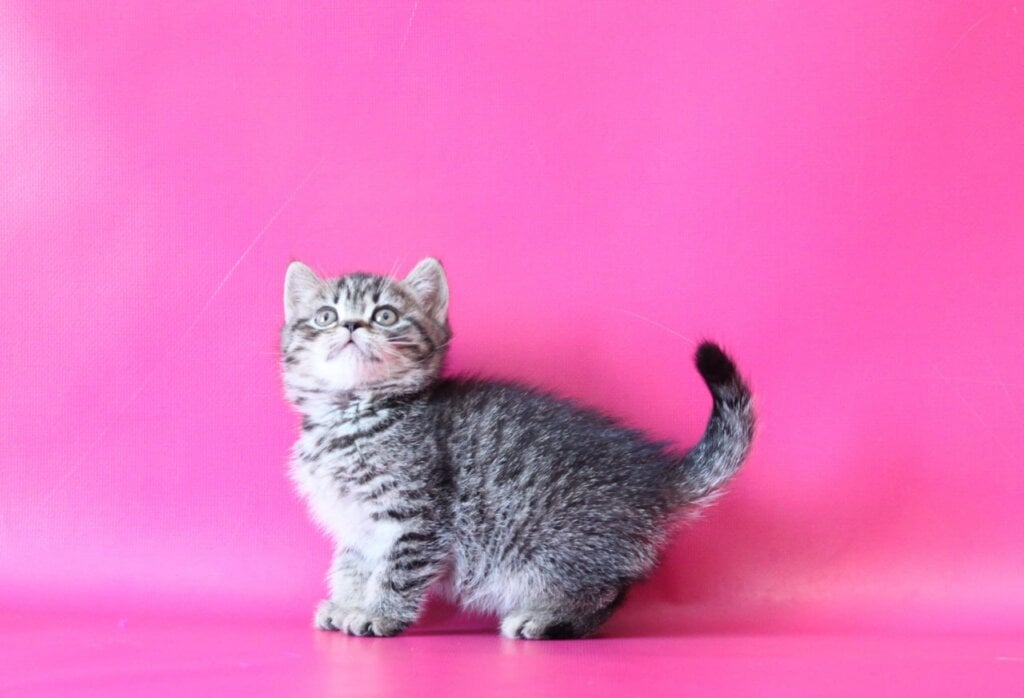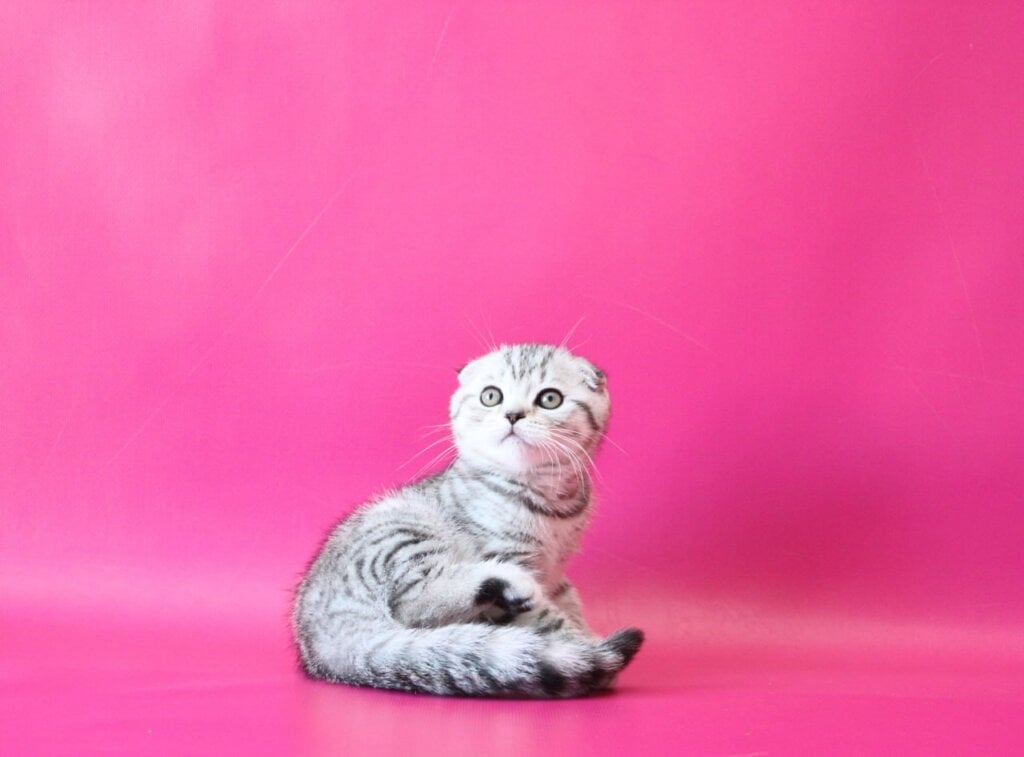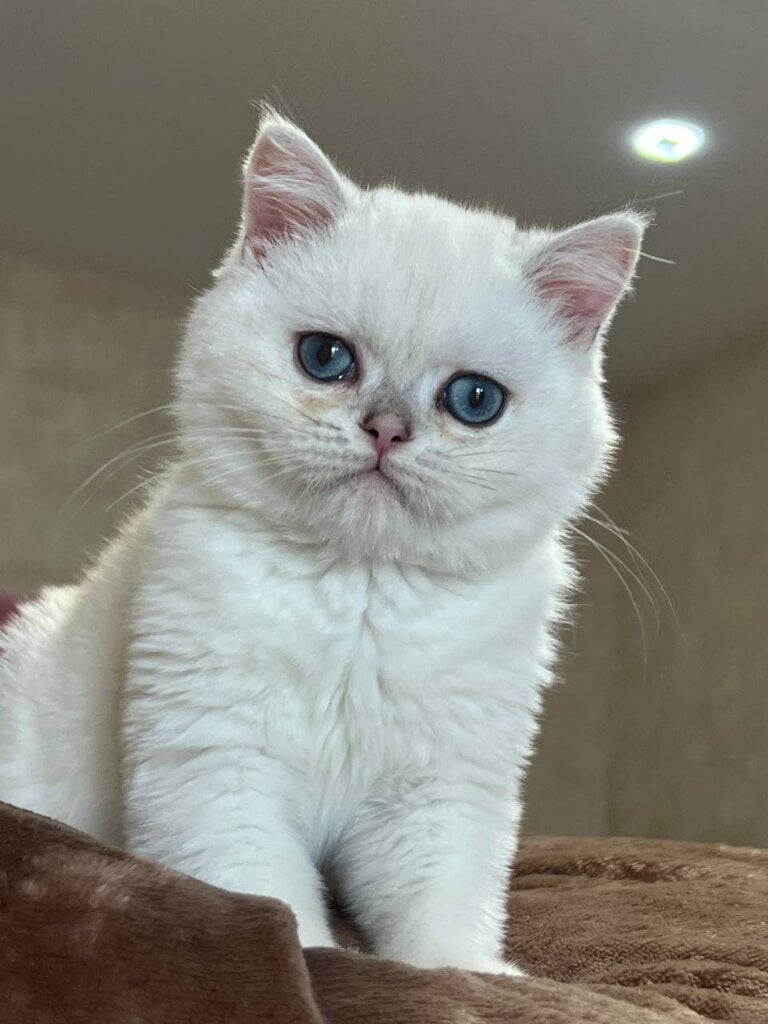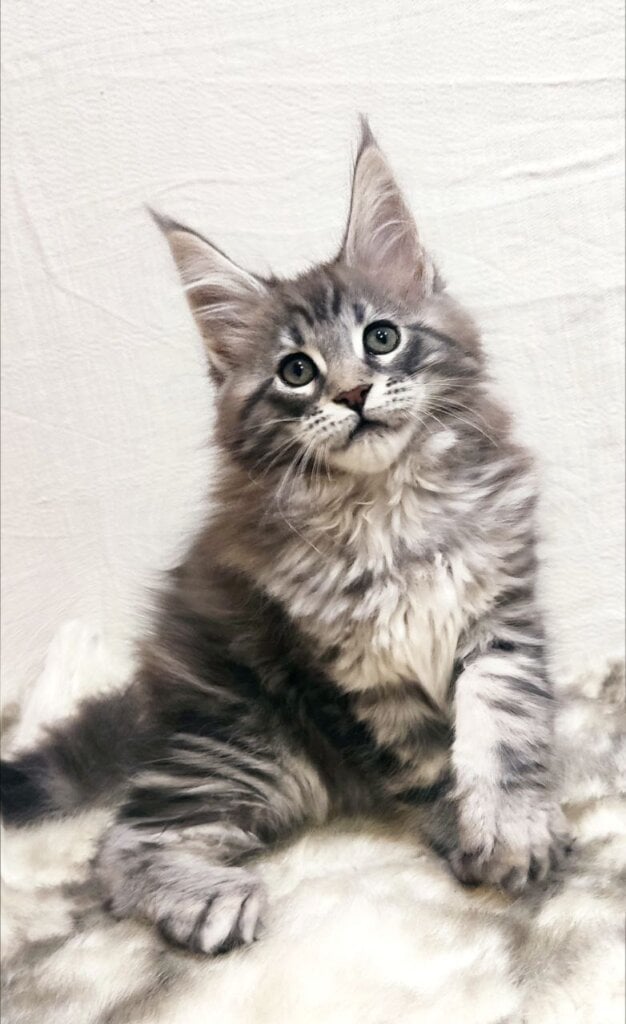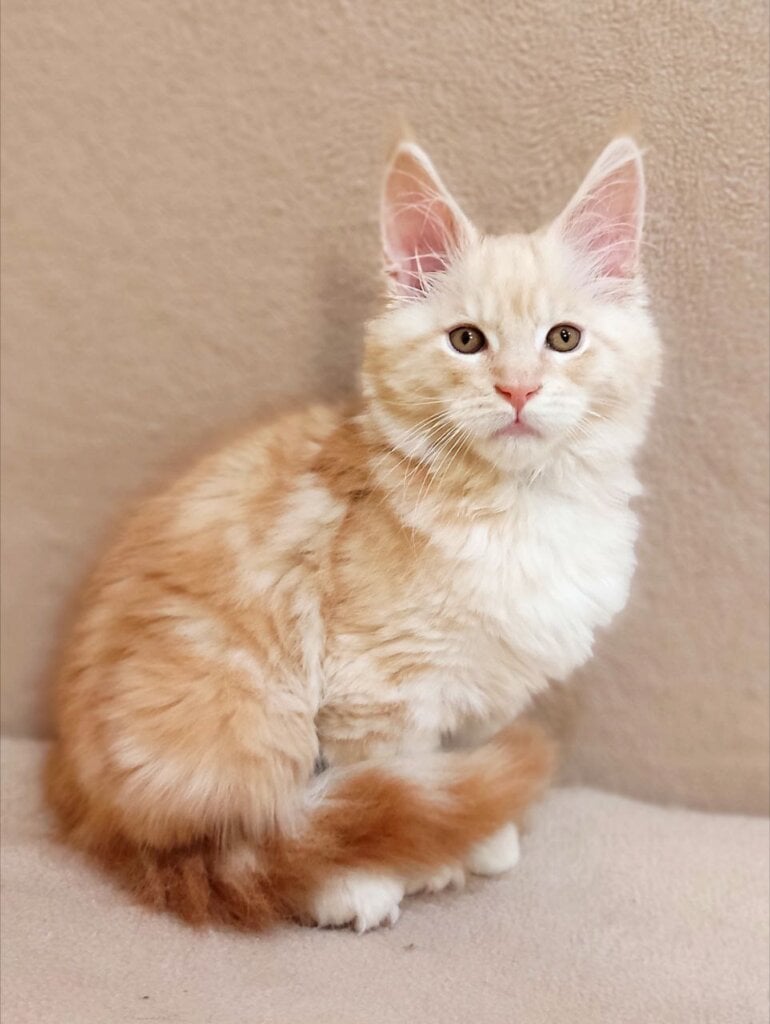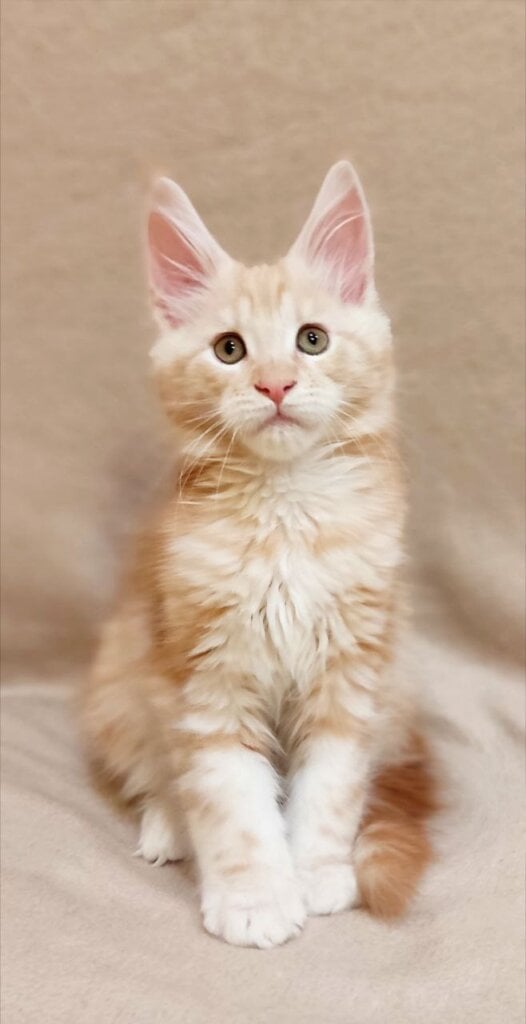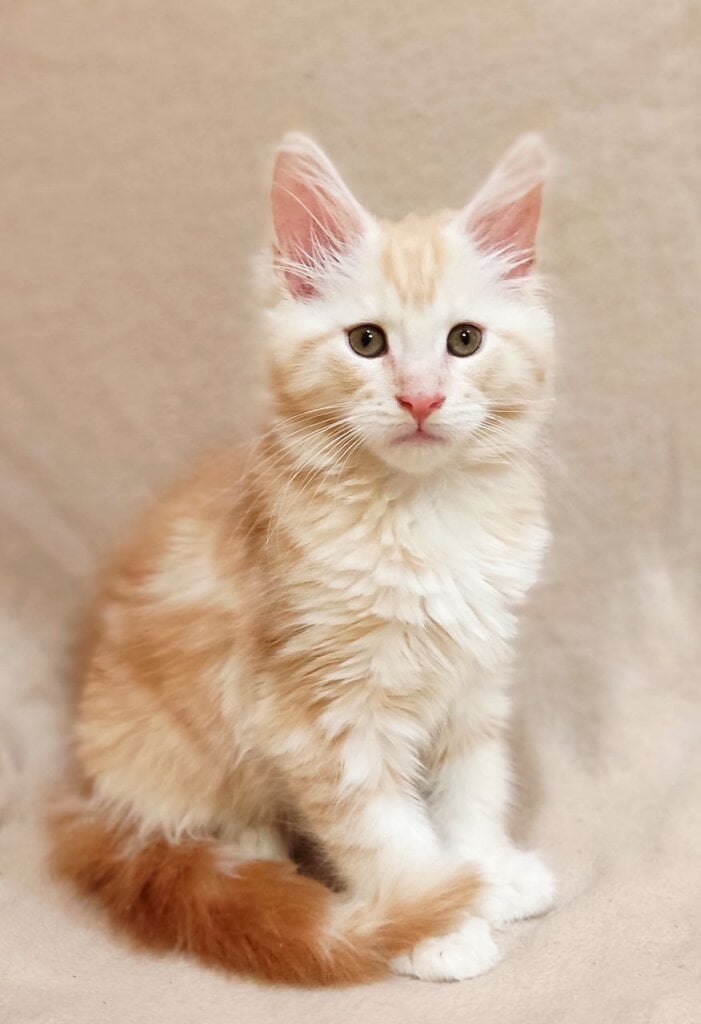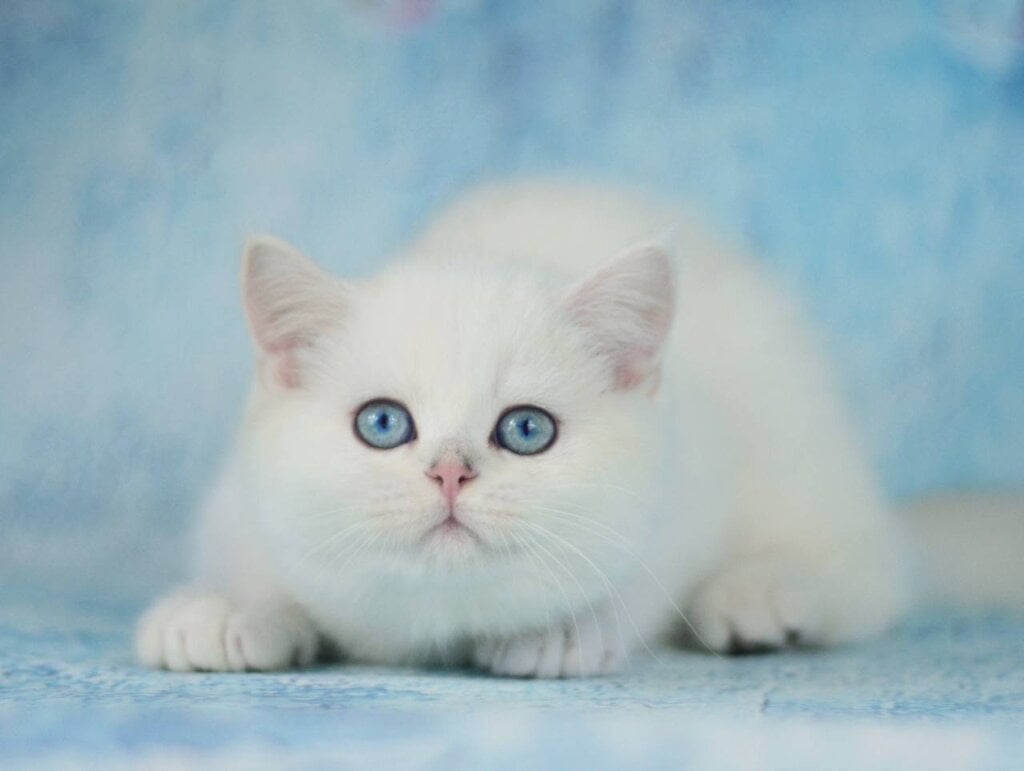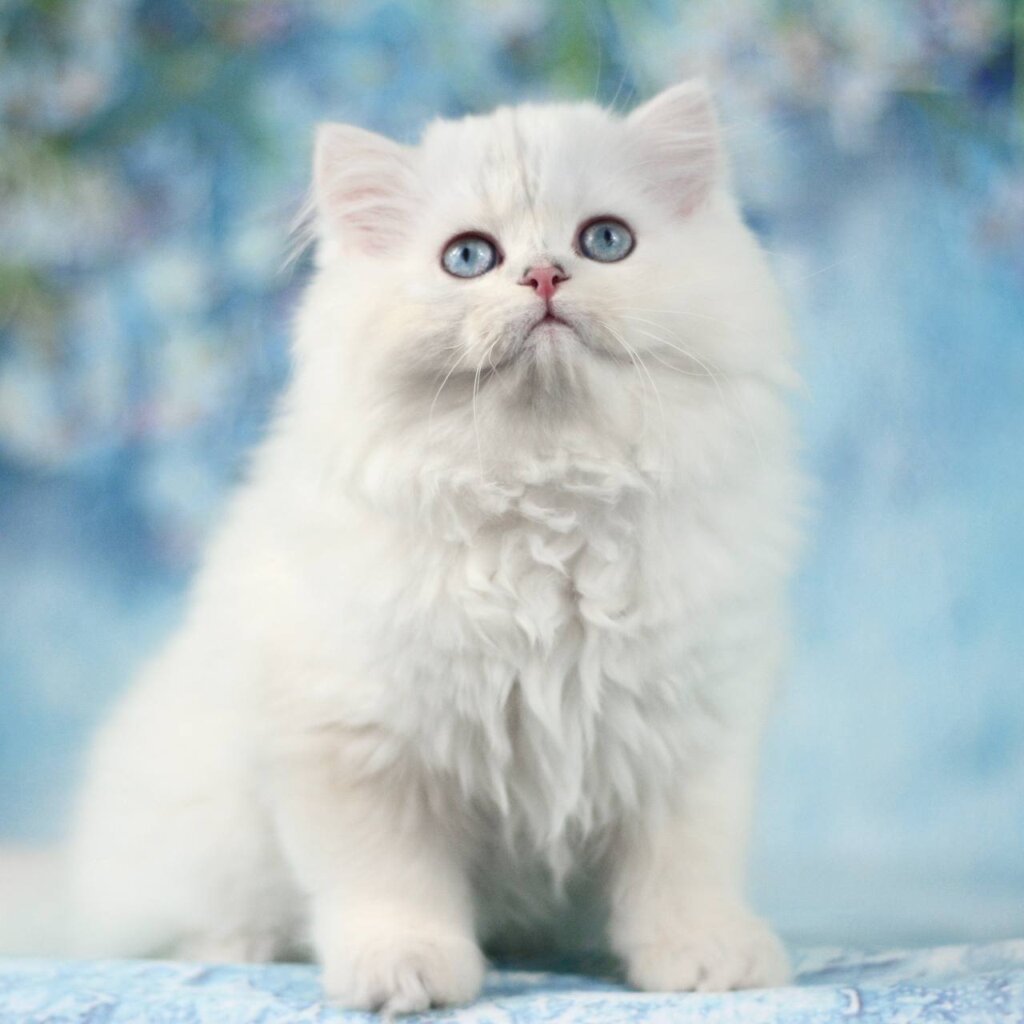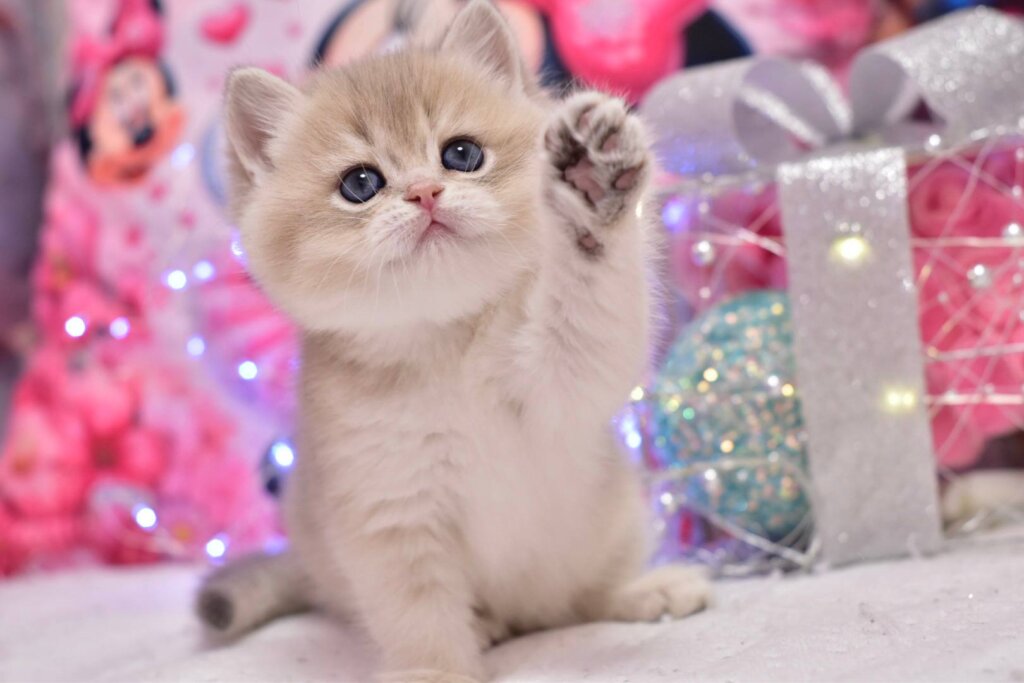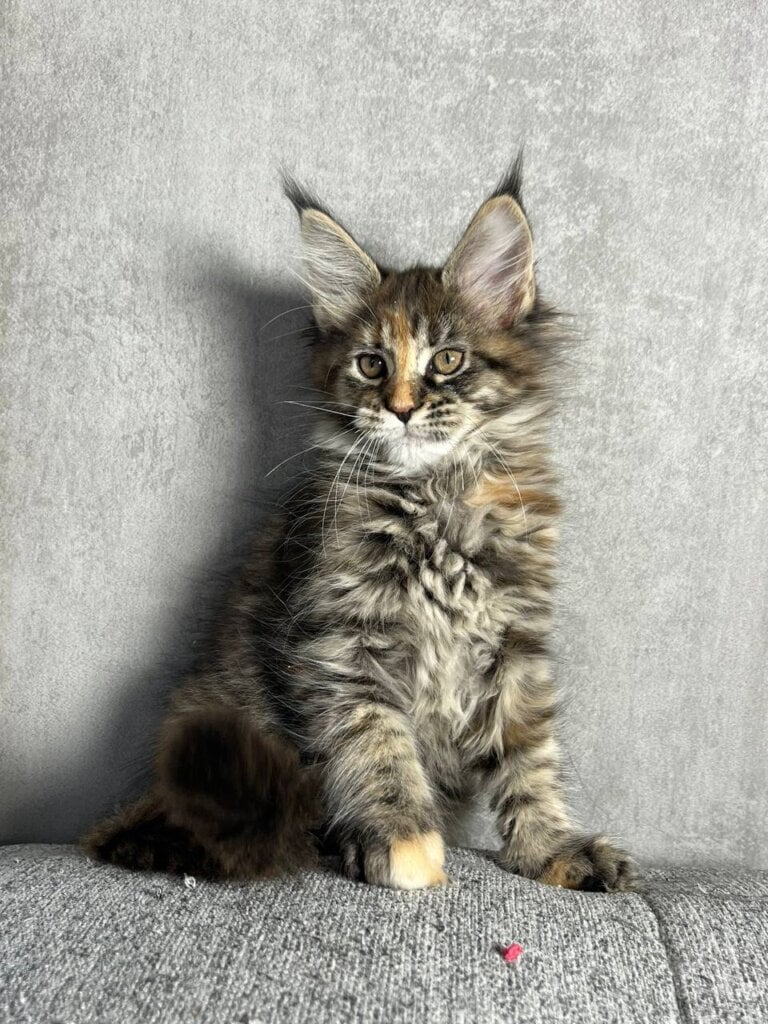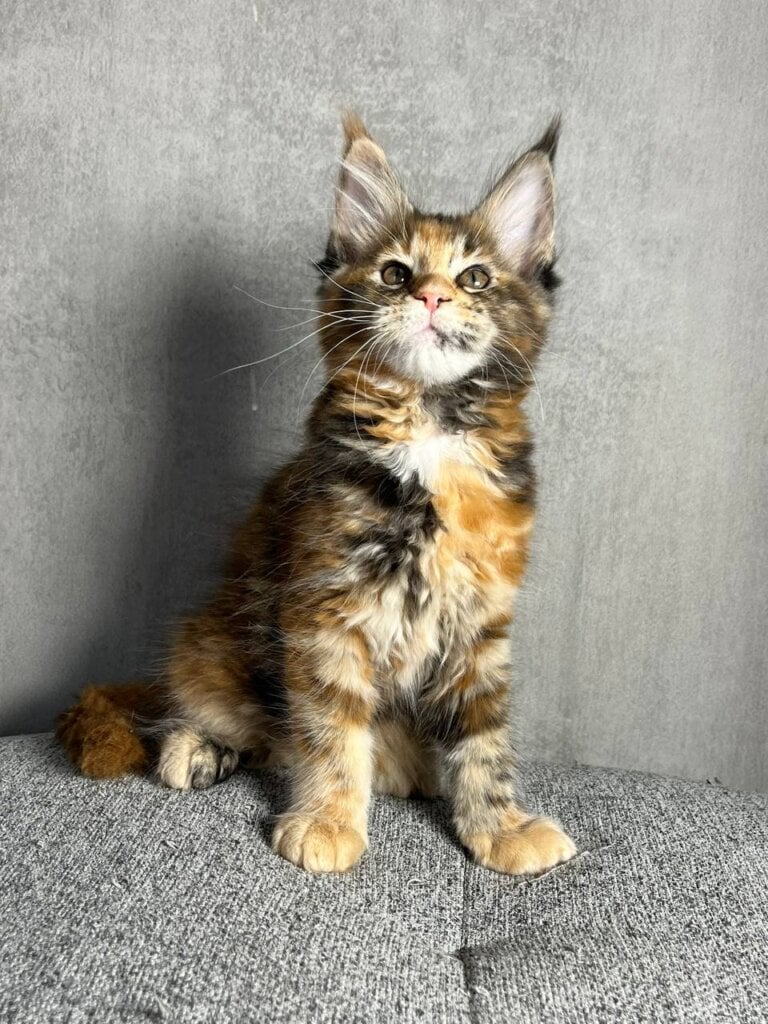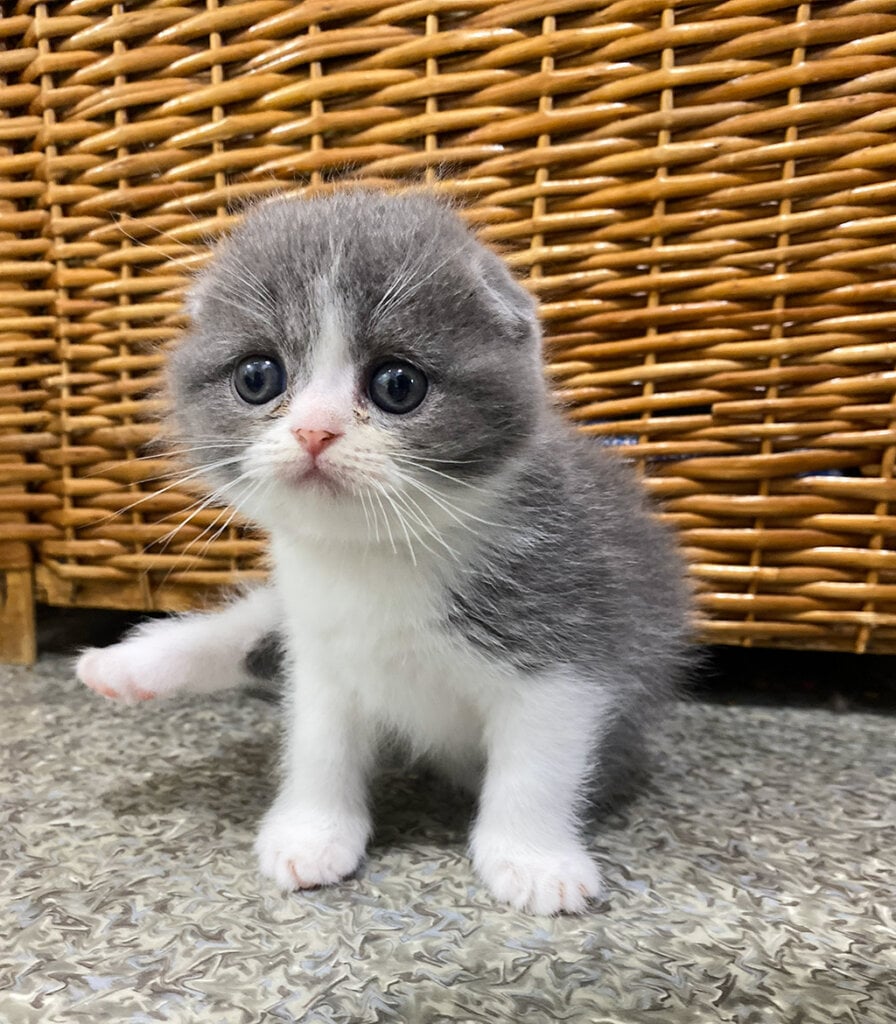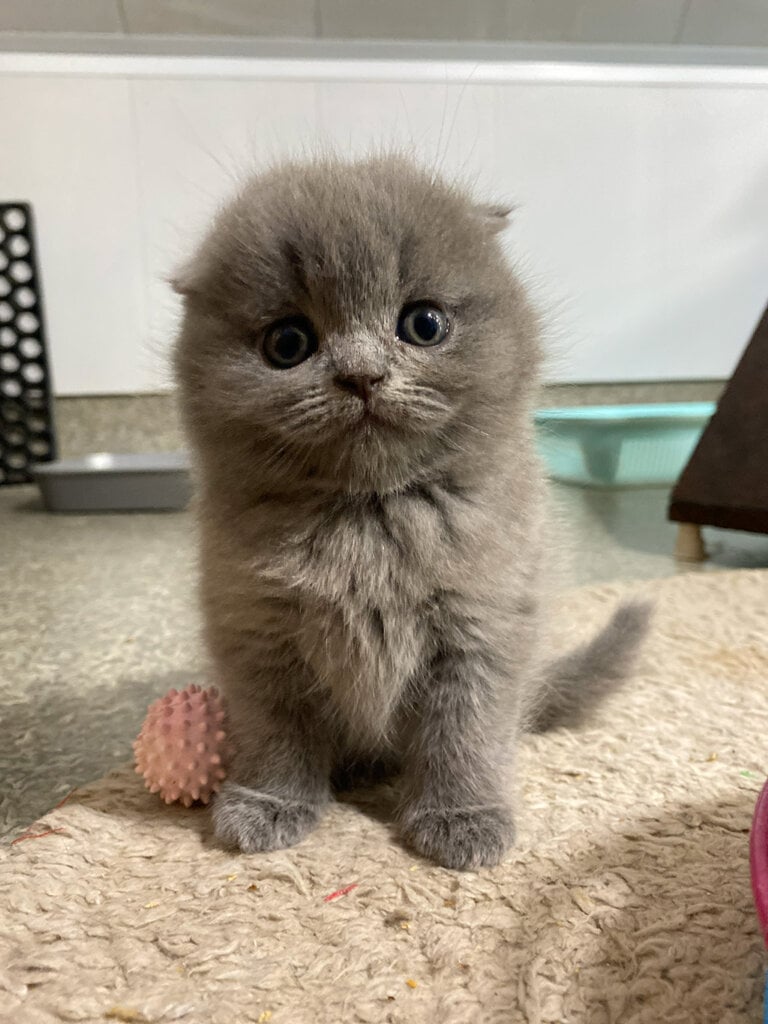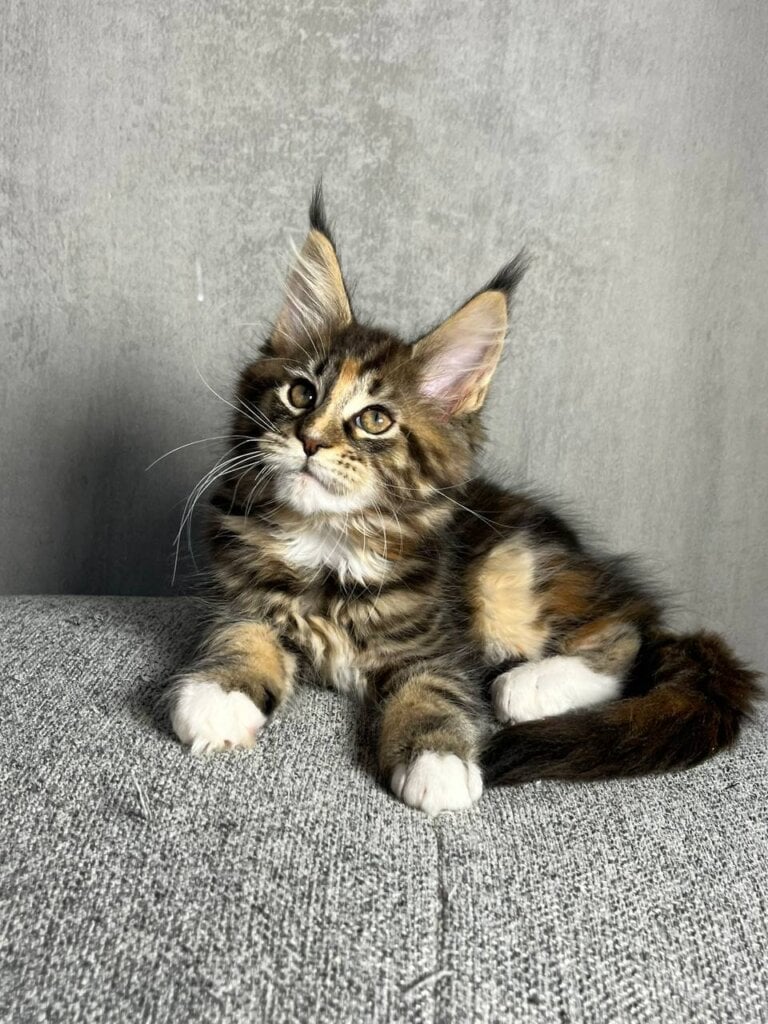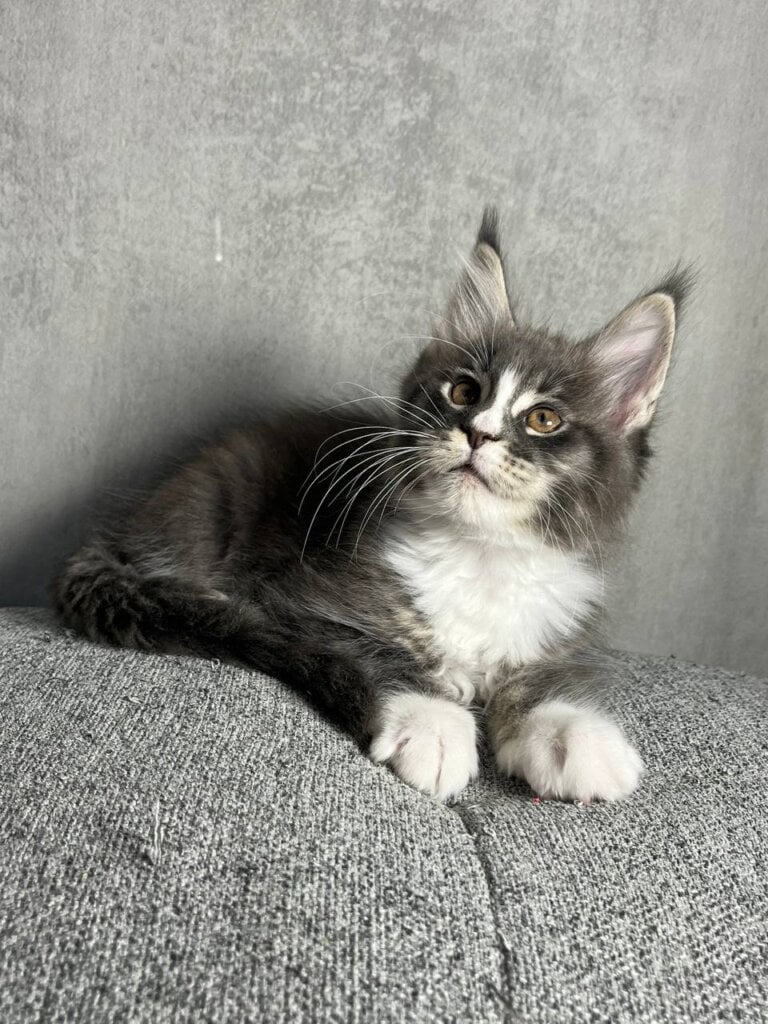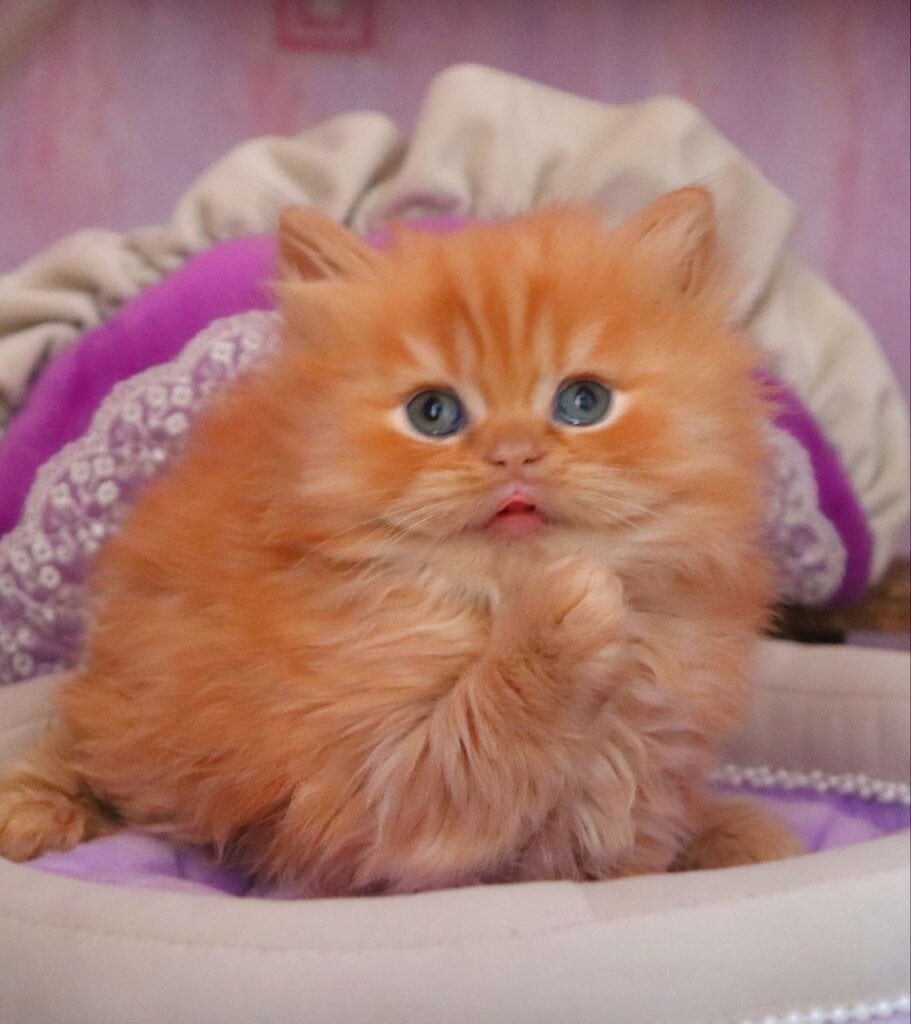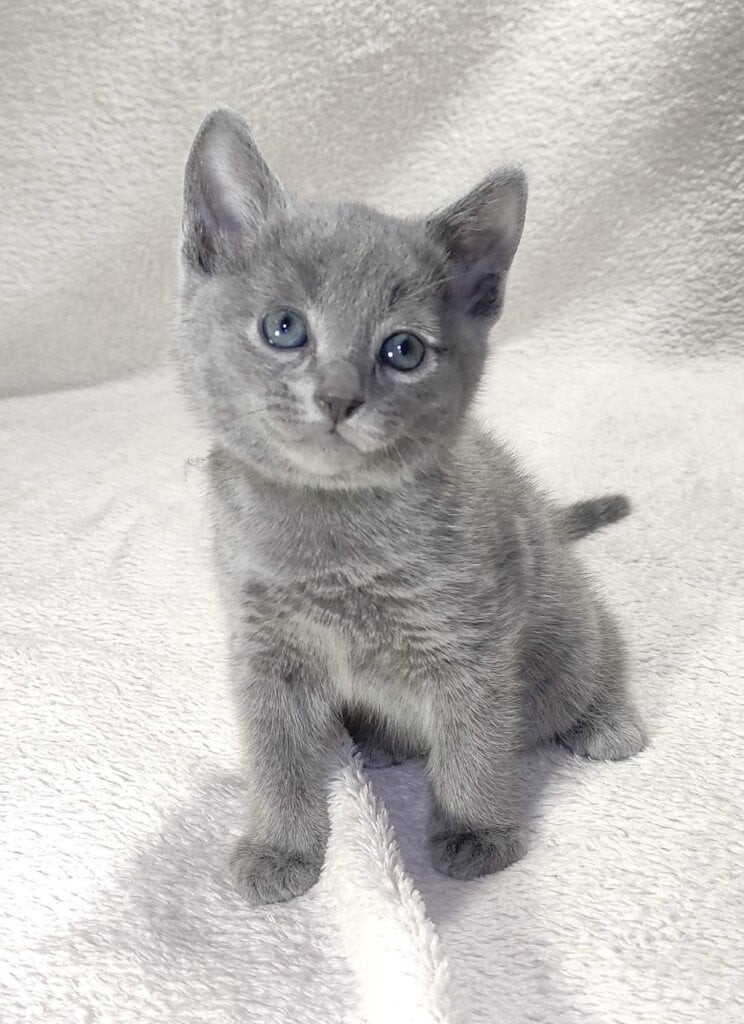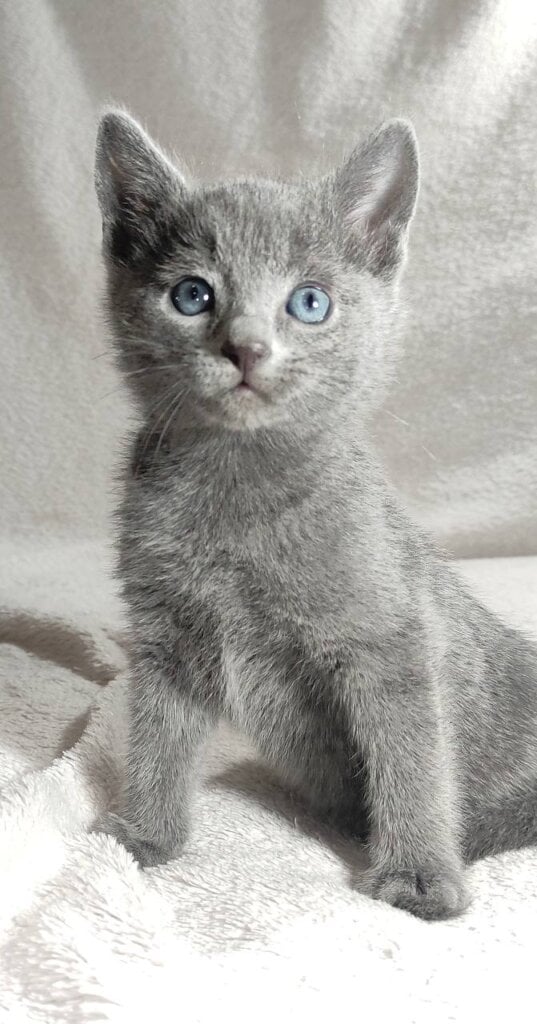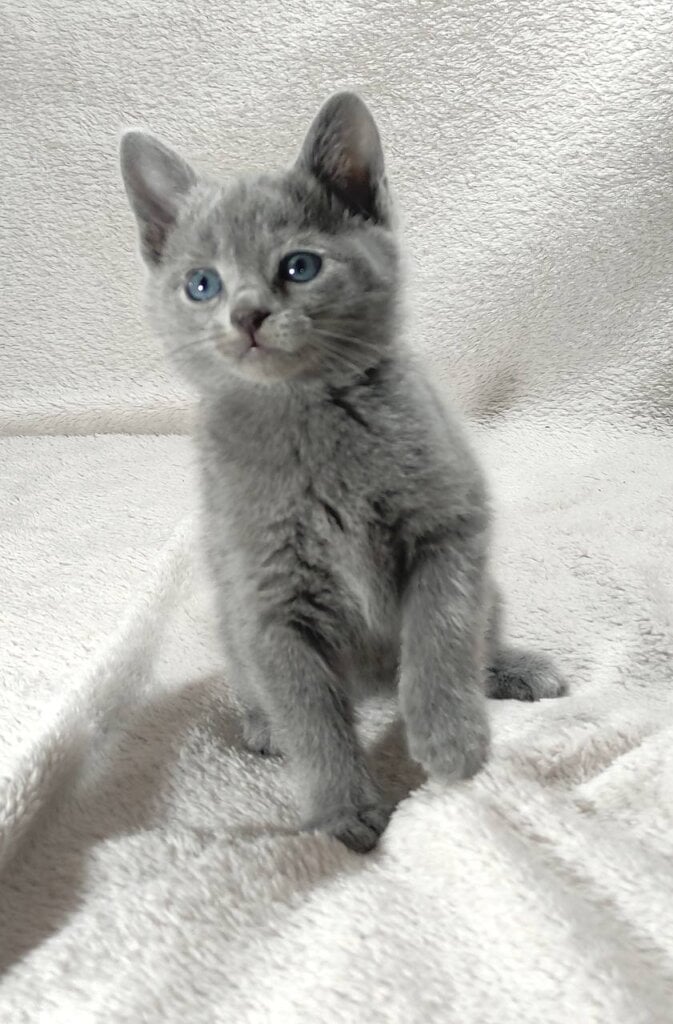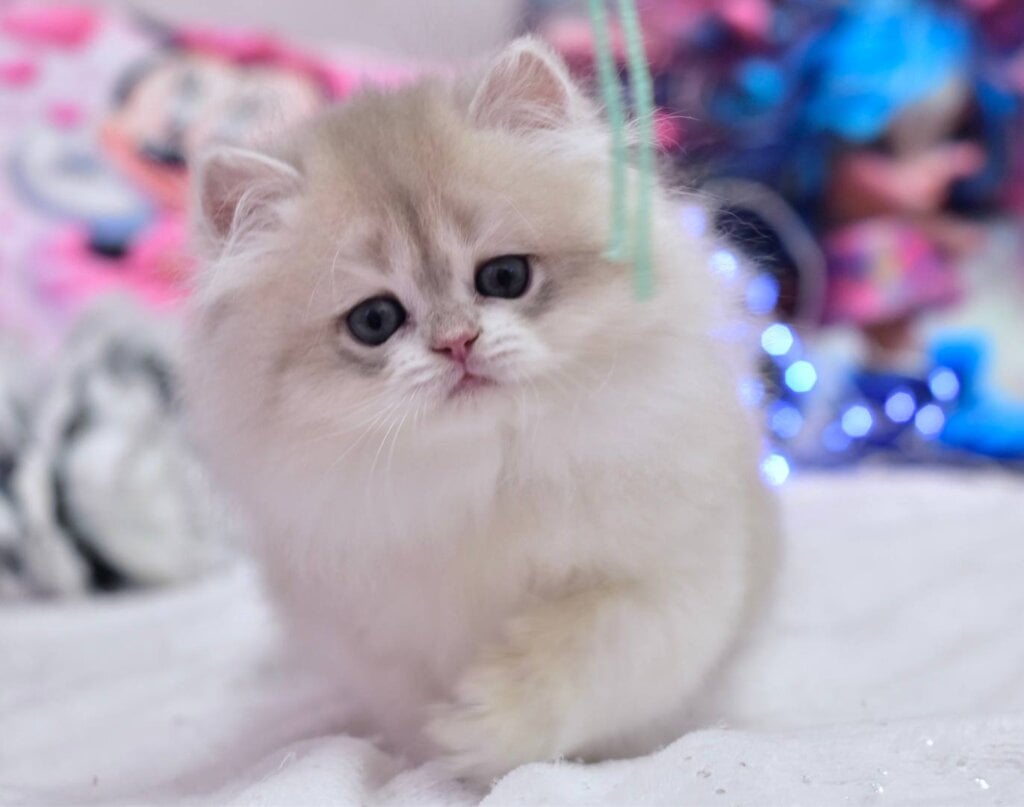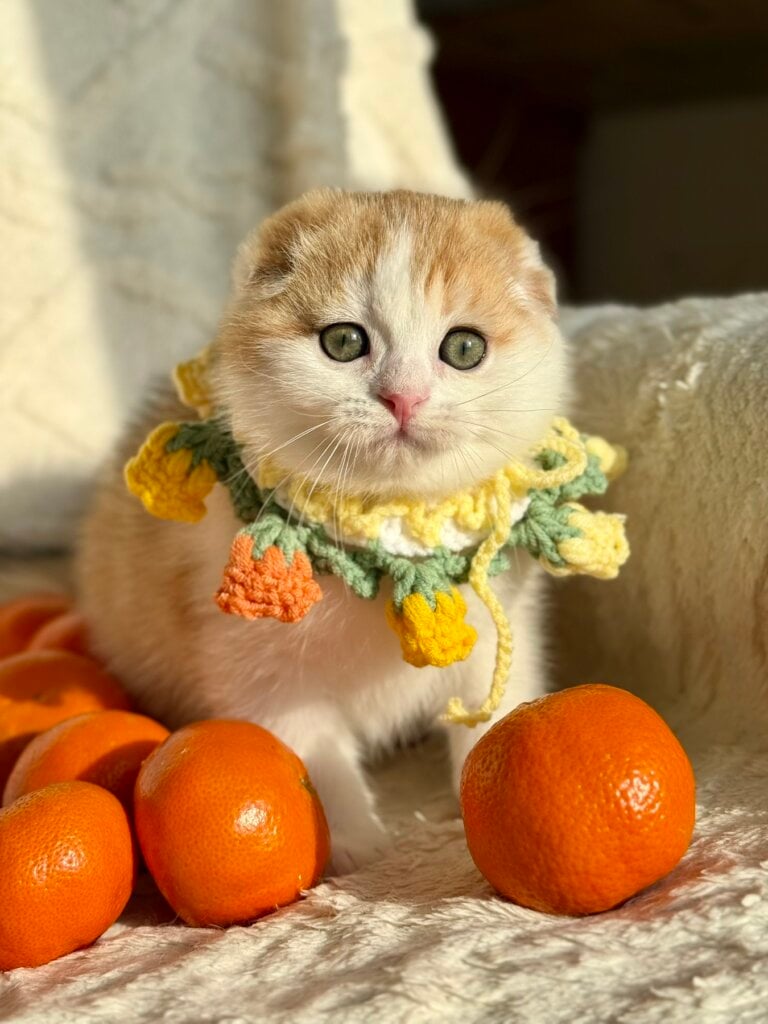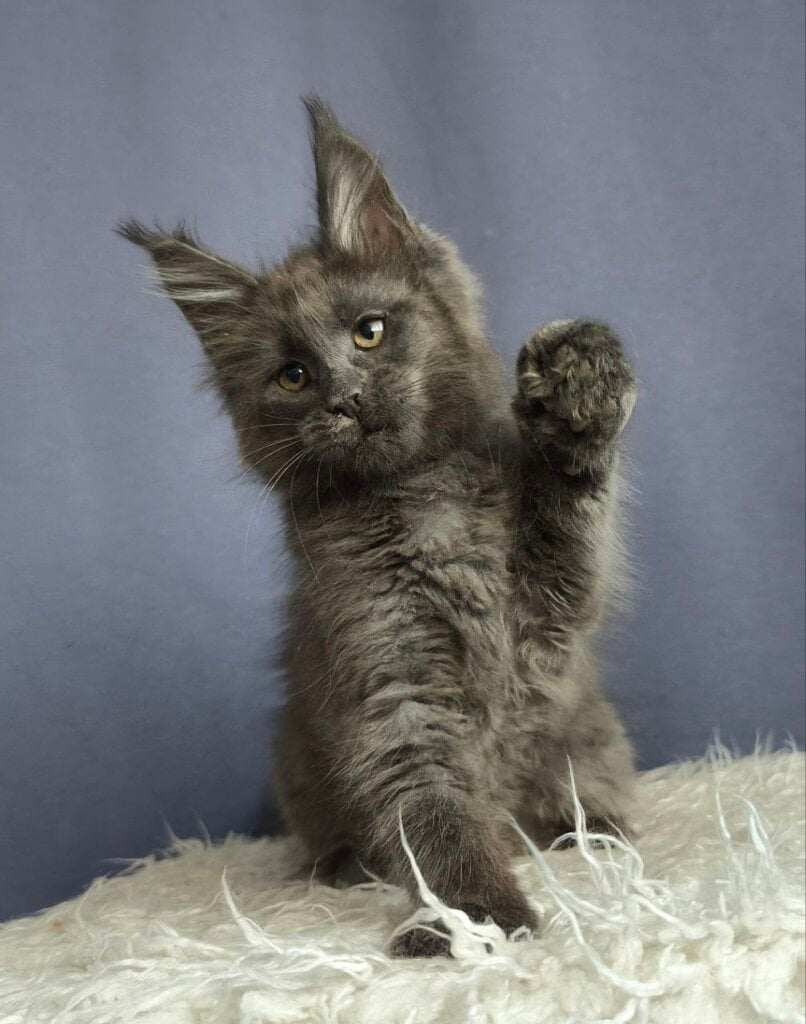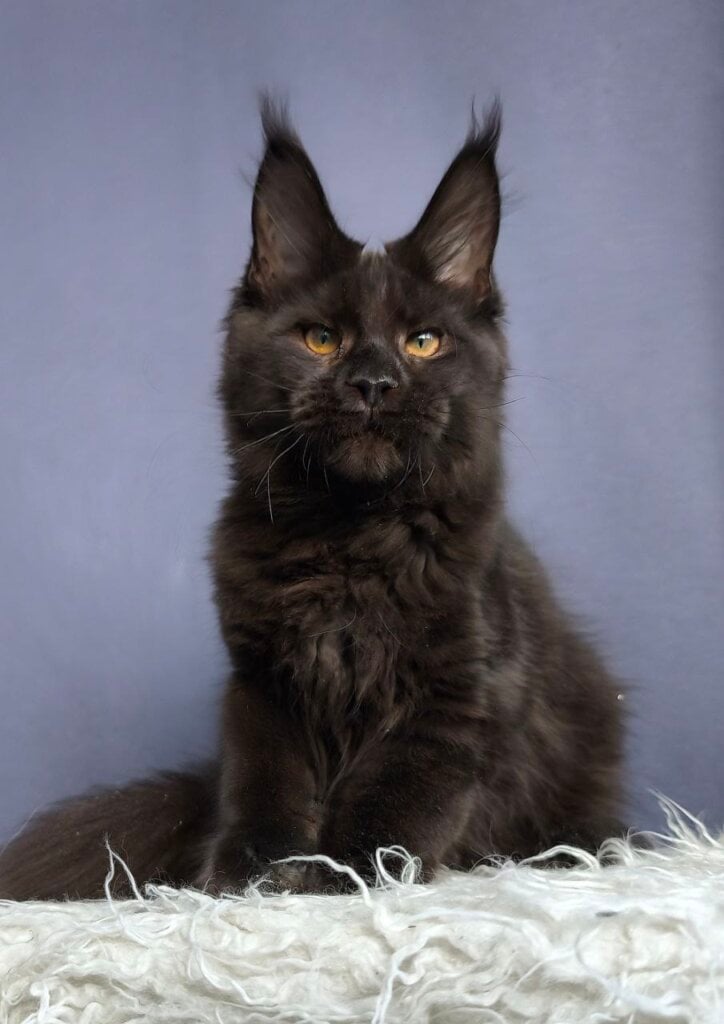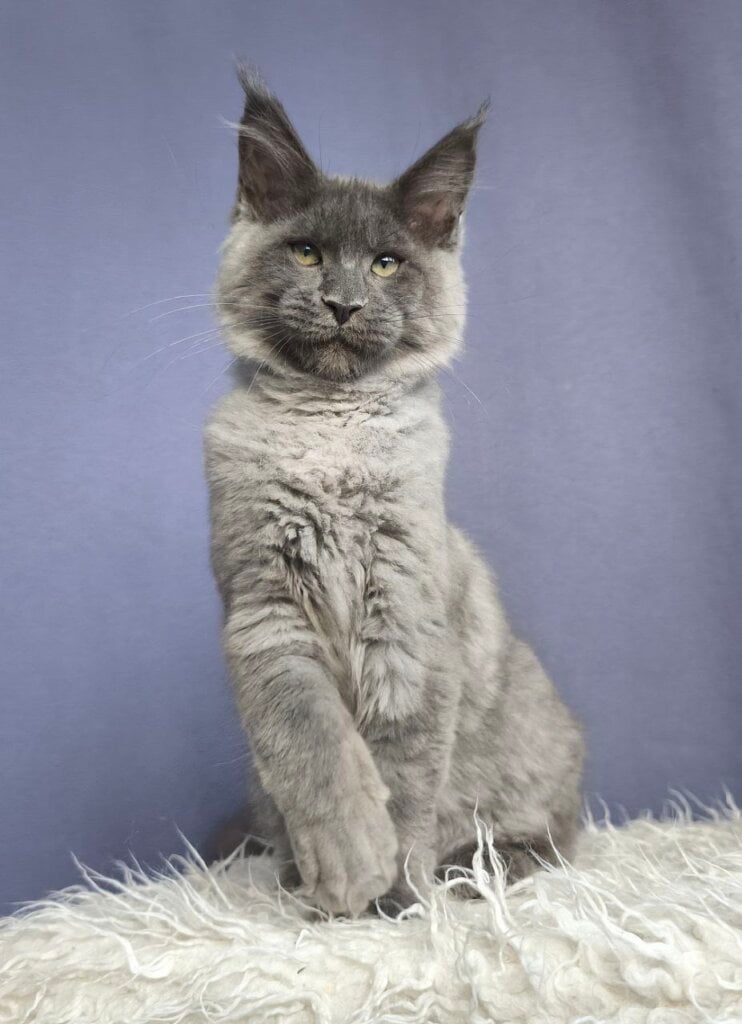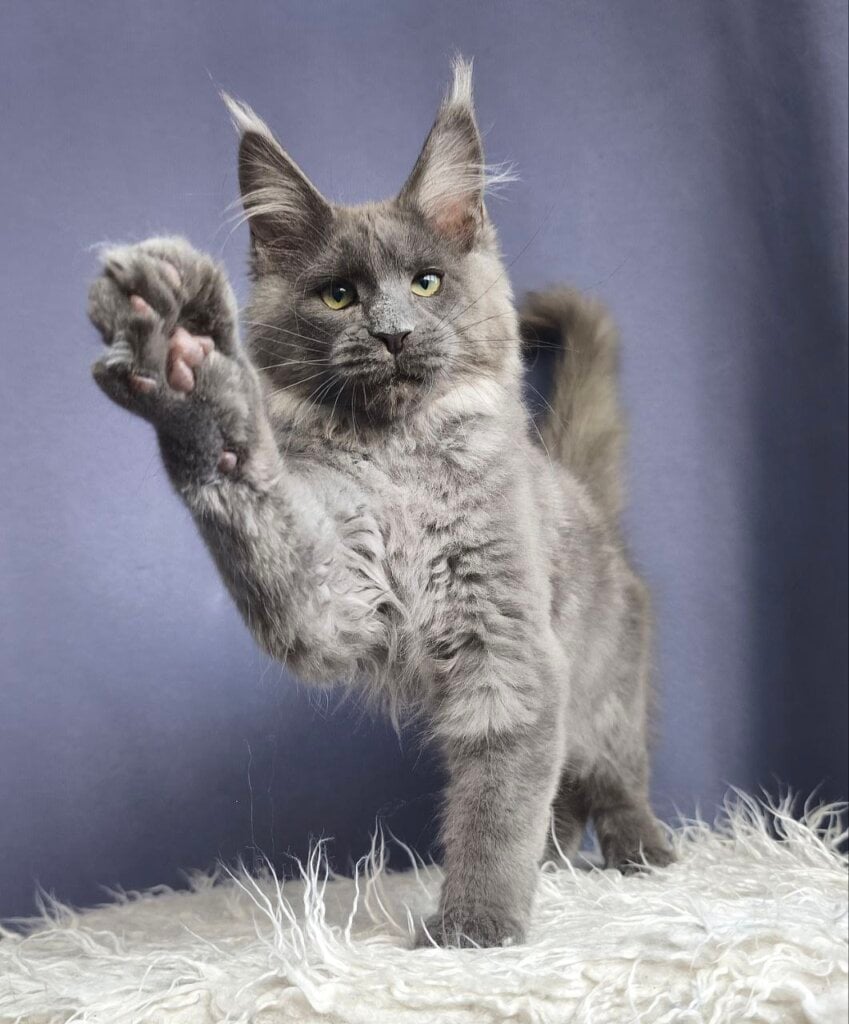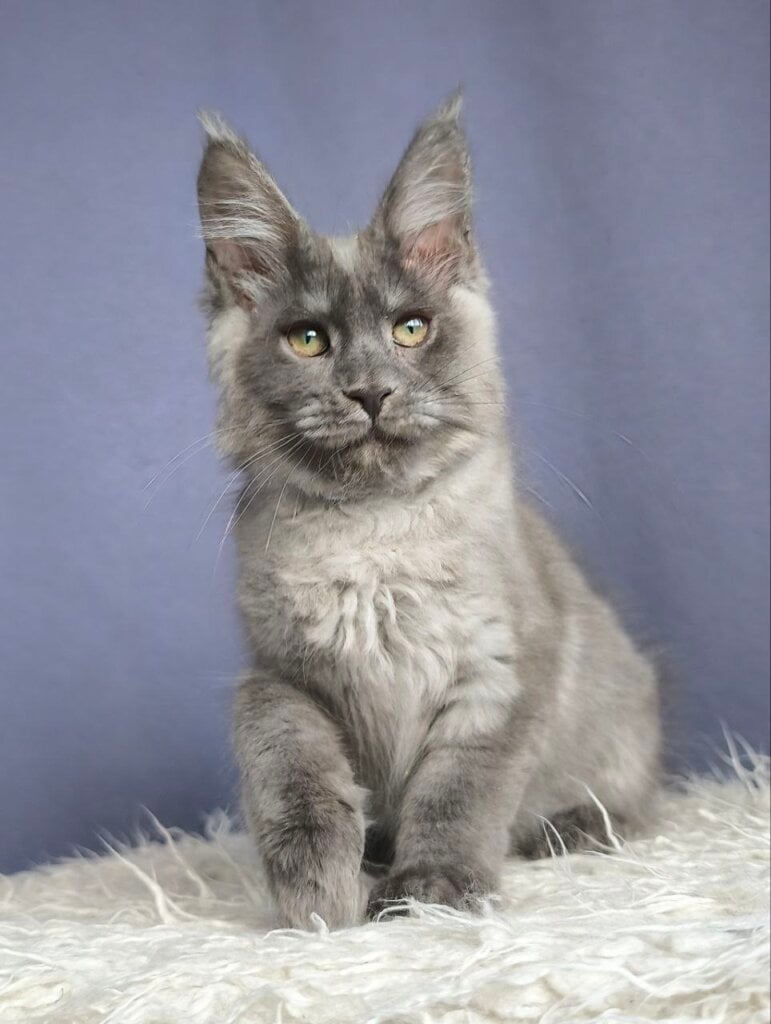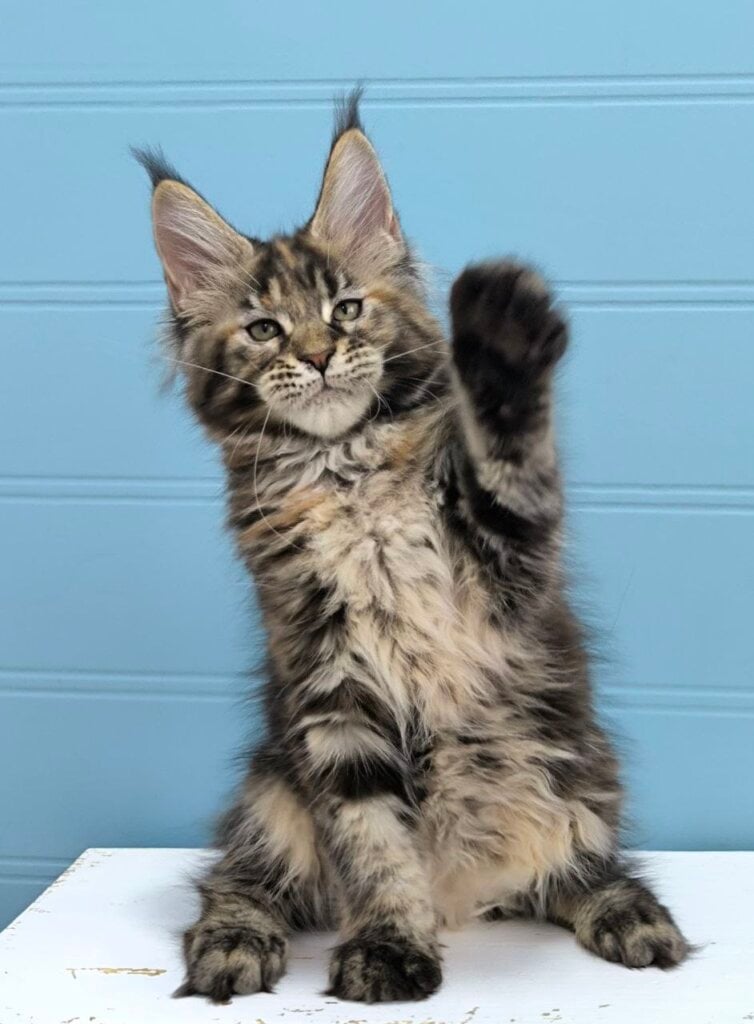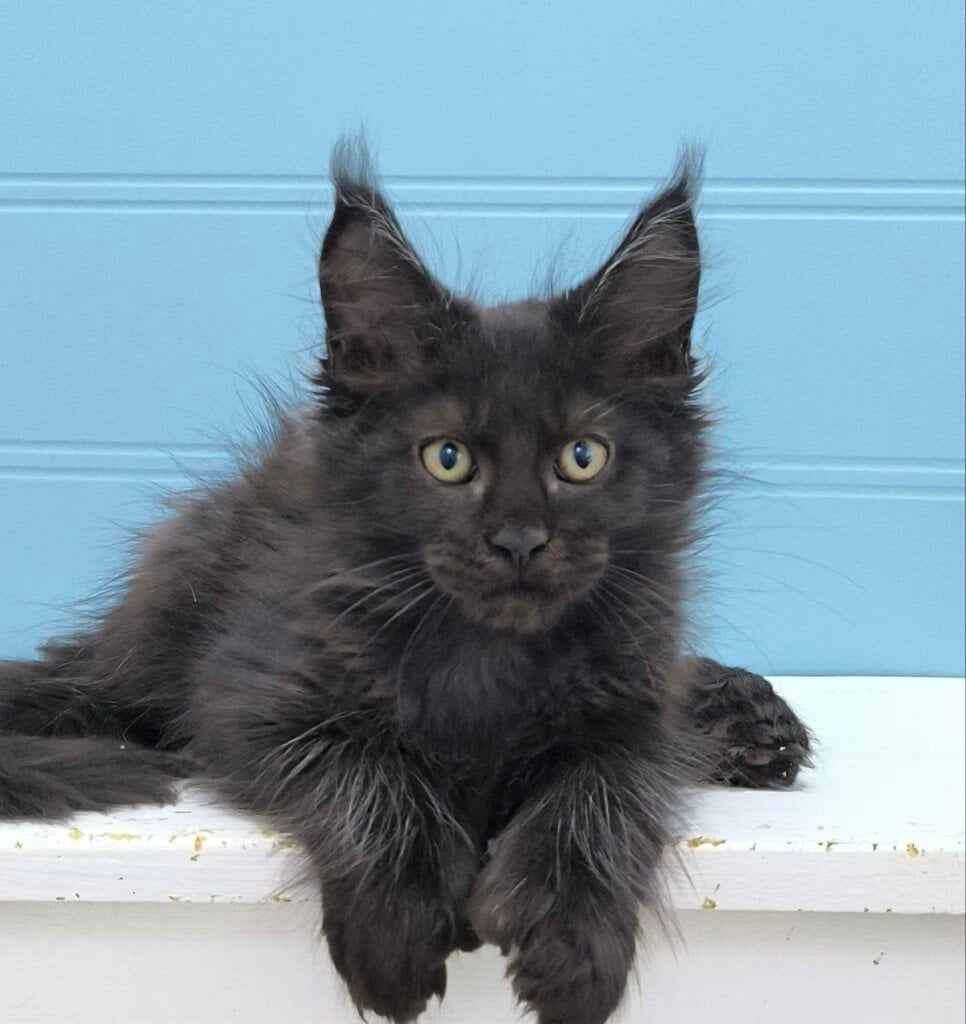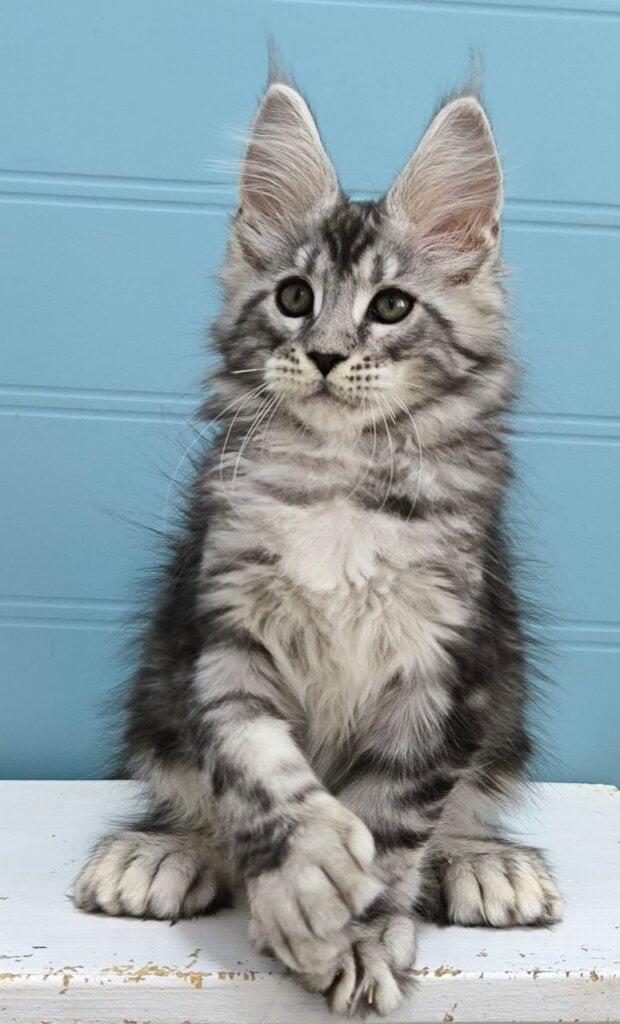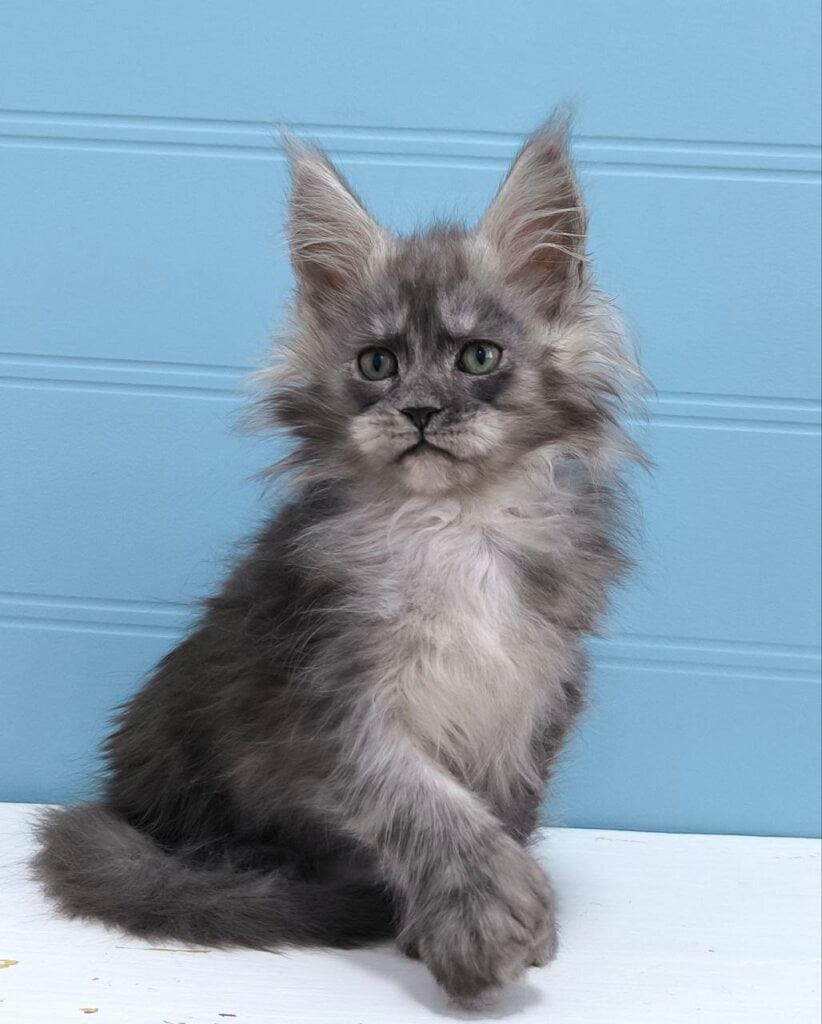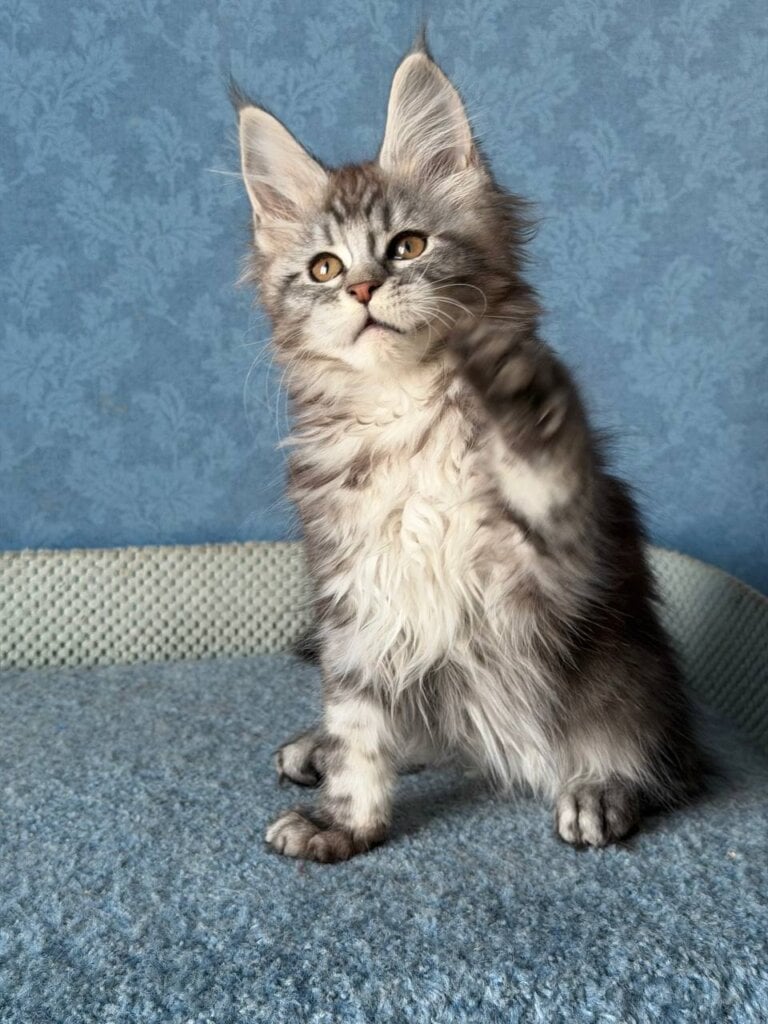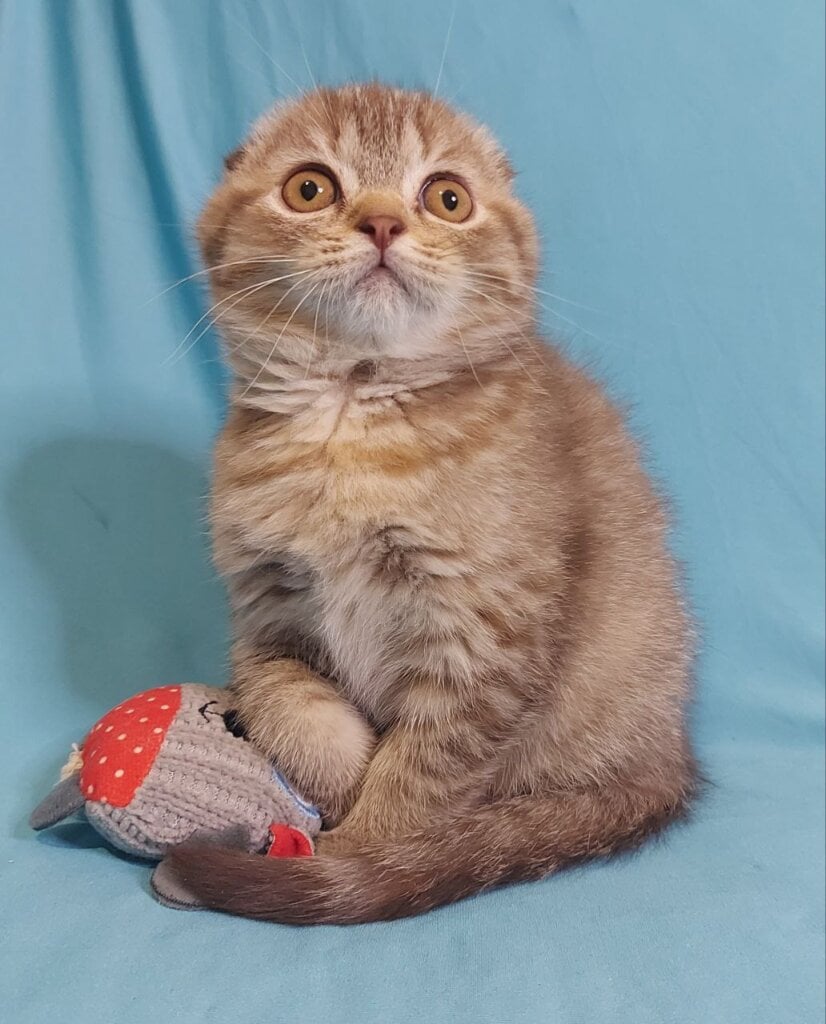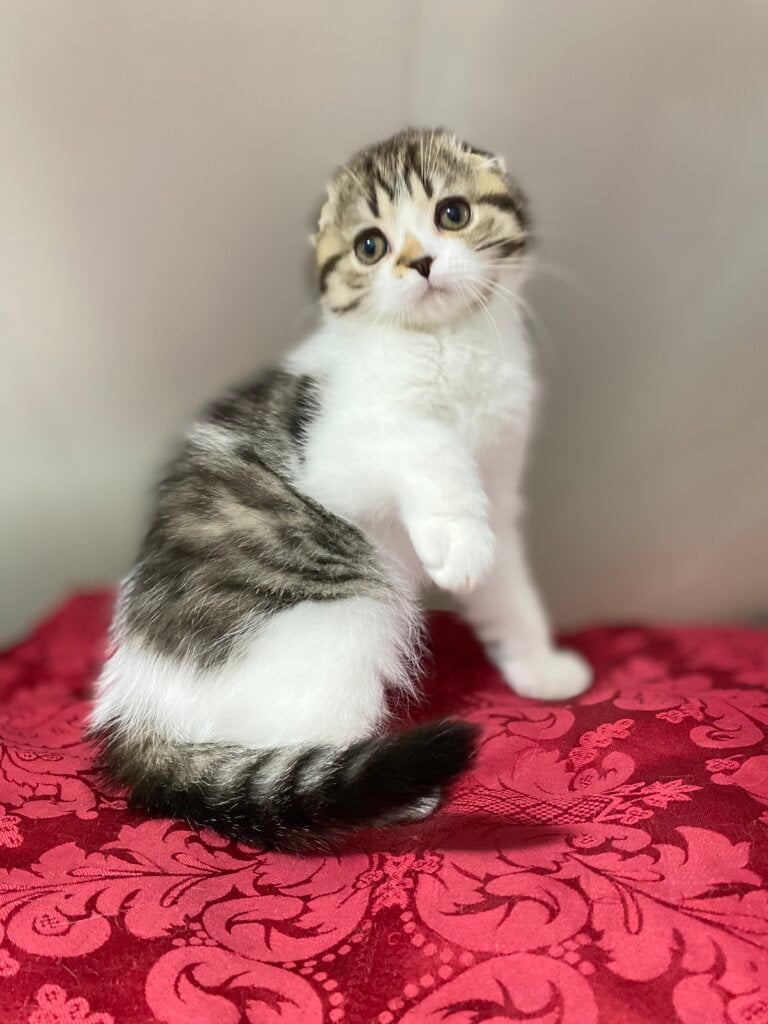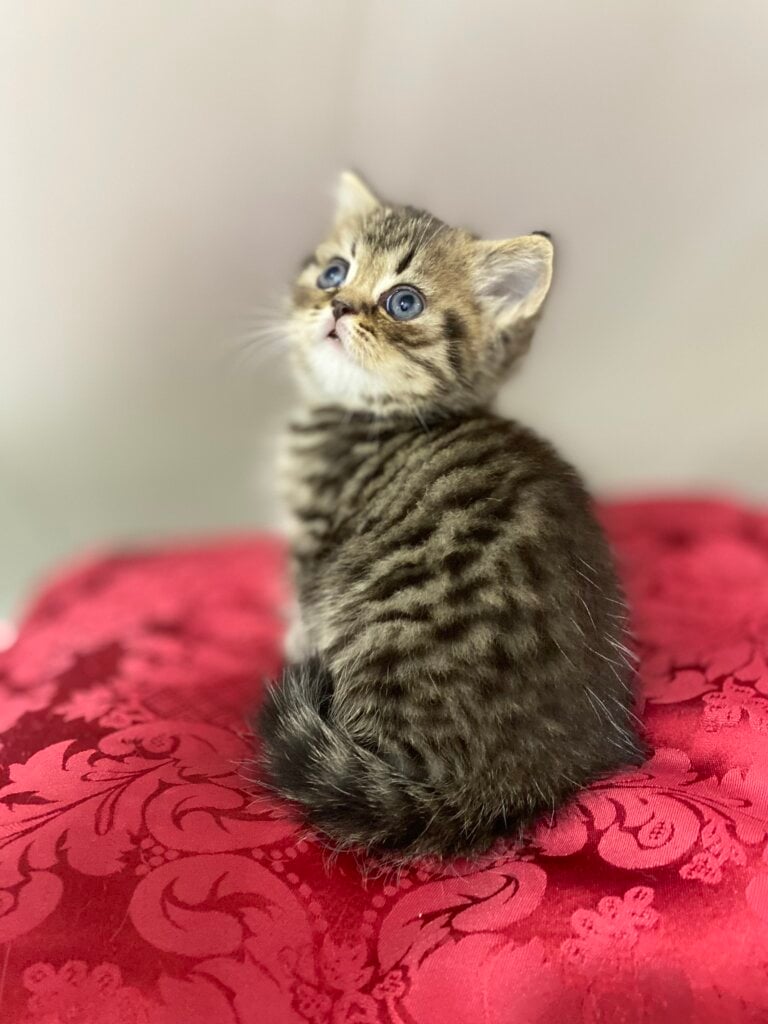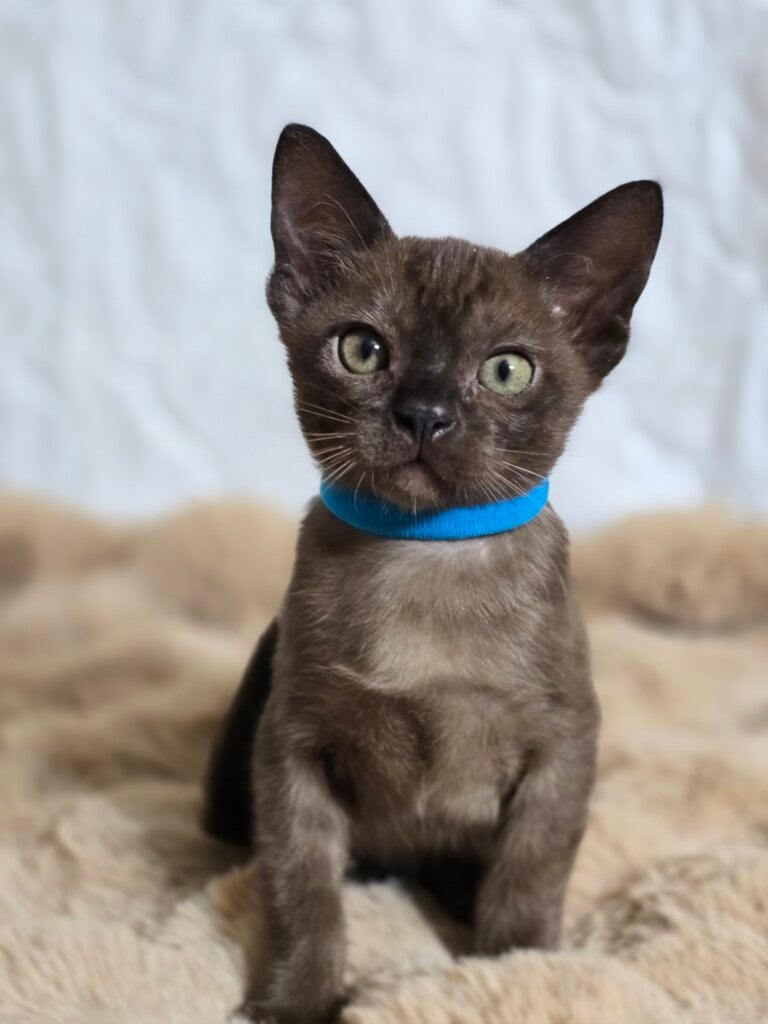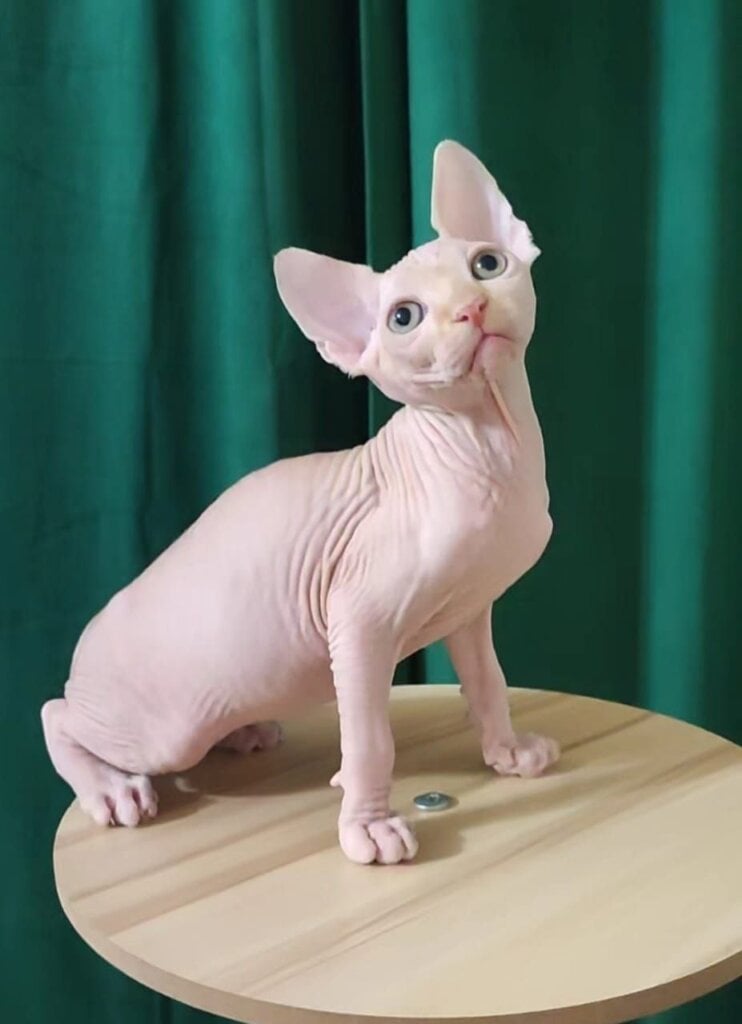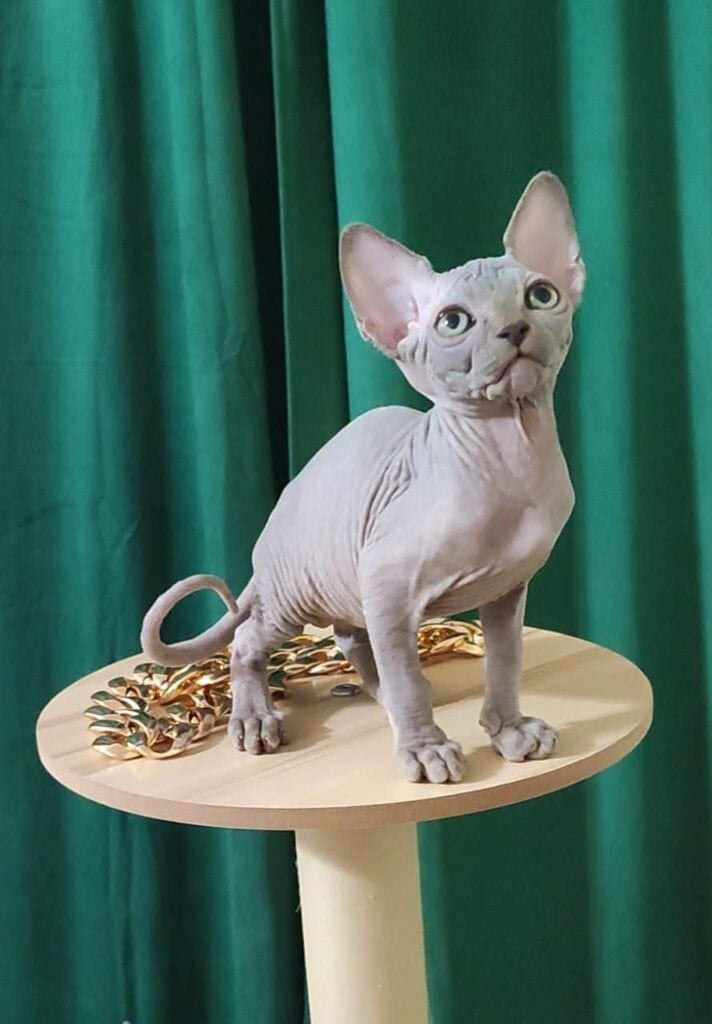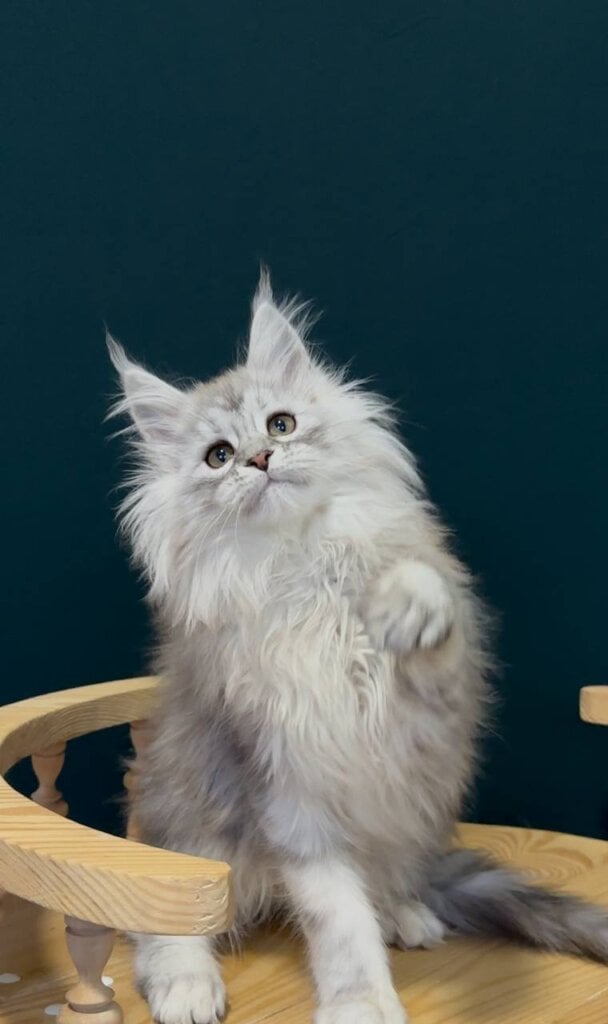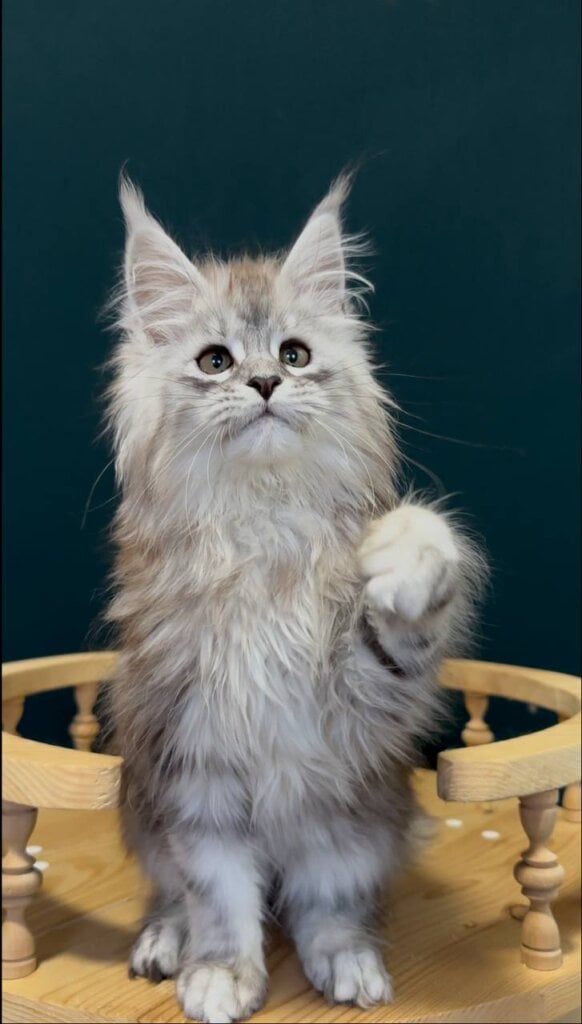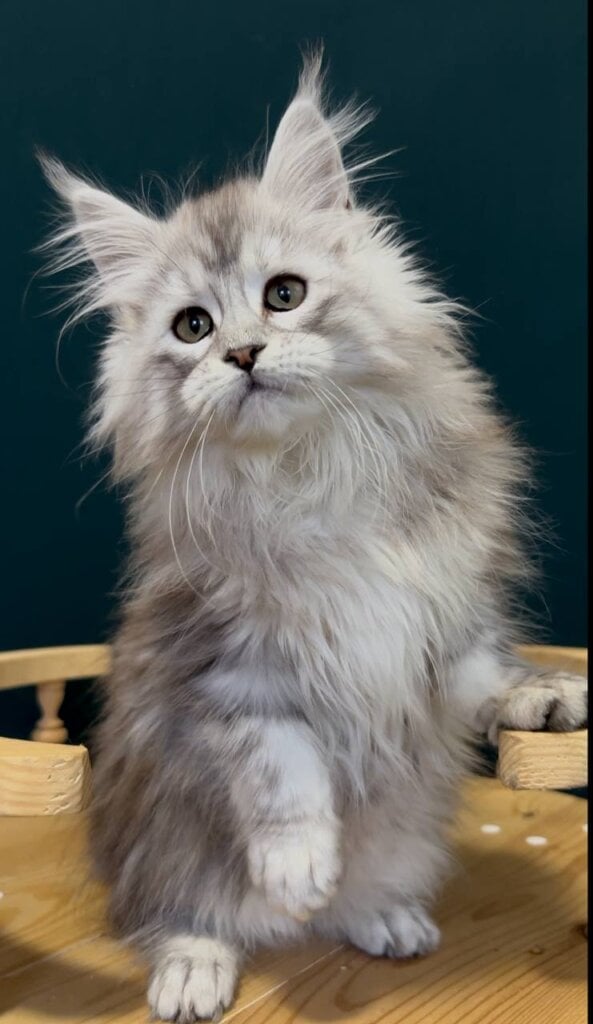Maine Coon teeth should be cleaned regularly in order to keep your cat’s mouth healthy and prevent dental disease. These big-toothed majestic felines have some big and powerful teeth that are ideal for chewing and ripping flesh.
They are prone to problems like tartar accumulation or gum disease. Routine brushing with vet-approved toothpaste along with annual dental checkups are crucial to their oral health.
Offering dental-friendly treats or toys is another way to promote clean, healthy teeth.
Understanding Maine Coon Teeth
Maine Coon cats are unmistakably majestic, not only in their size, but in the wonder of their features – especially their striking teeth. Regular dental care is key to maintaining a Maine Coon’s overall health and well-being. These cats are more likely to develop particular dental issues compared to other breeds.
Here, we’ll take a closer look at their dental anatomy, growth, and care to keep them healthy.
1. How Many Teeth Do They Have?
Adult Maine Coons have 30 teeth in total, which is the same as all adult domestic cats. These consist of incisors, canines, premolars, and molars, each designed for a particular function, including biting, tearing, and grinding food.
Due to their larger size, they have larger teeth than other breeds. This is why regular dental hygiene is so important to their overall health. Without a consistent, preventative approach to dental care, problems such as plaque and tartar build-up can quickly worsen.
Regular tooth brushing – aim for at least 2 to 4 times a week – is strongly advised to keep their teeth free of plaque that causes decay and gum disease.
2. Development of Adult Teeth
Maine Coons, just like any other cats, are born without teeth. Their baby teeth, or deciduous teeth, start coming in at about 2 to 3 weeks old. By 6 months, these are replaced by their permanent set of 30 adult teeth.
This brings us to an important point in their dental care. If they are not taken care of, issues can occur while they are teething. Stomatitis, an extreme inflammatory response of the gums, can occur in Maine Coons at a higher rate than in other breeds.
It’s thought that about 2% of Maine Coons may be affected by this condition. If ignored, it can progress to painful swelling and lesions. Routine veterinary examinations during this stage are vital to ensure that they are developing properly and address any concerns with dental development.
3. Unique Dental Structure
Because of their size, the dental structure of Maine Coons is directly impacted. Their relatively larger teeth are important for chewing their food and making it easier to digest. Those very teeth make them more prone to gum diseases.
Research indicates that 80 percent of cats suffer from some degree of periodontal disease, no matter their breed. Because Maine Coons suffer from gingivitis and periodontitis, it is essential that they maintain their oral health.
Regular dental care can help mitigate those heightened immune responses before they advance. These conditions, when untreated, may develop into stomatitis, resulting in extreme discomfort and decreasing their quality of life.

Common Dental Issues in Maine Coons
Maine Coons, as with all felines, should receive regular dental care in order to lead long and happy lives. Sadly, even if you leave it up to them, cats, and Maine Coons in particular, won’t do a great job of maintaining their teeth.
Dental disease
Eighty percent of cats older than three are affected by dental disease. Maine Coons are certainly not immune from this tragedy! By familiarizing themselves with these common dental issues, pet owners can better equip themselves to take preventive measures. This will help them keep their Maine Coon’s mouth healthy and prevent dental disease.
1. Feline Gingivitis Explained
Gingivitis is one of the very first signs of dental disease in Maine Coons. You’ll recognize this by the presence of red, swollen, or bleeding gums. This issue is caused when plaque collects on the teeth and calcifies into tartar, inflaming the nearby gum tissue.
Maine Coons are especially susceptible to juvenile gingivitis, which may develop as early as six months of age. Signs to look out for are stinky breath, an unwillingness to eat, or blood or inflammation along the gumline. Brushing your pet’s teeth regularly goes a long way – start today!
In addition to dental care, using Veterinary Oral Health Council (VOHC)-approved products contributes to controlling plaque and tartar and staving off gingivitis.
2. Stomatitis in Maine Coons
Maine Coons are predisposed to stomatitis, a painful, debilitating inflammation of the oral tissues. This inflammation usually results in trouble eating, excessive salivation, and overt pain. Stomatitis is a major uphill battle.
Because this is the only way to get rid of that awful inflammation, it typically requires multiple treatments, sometimes requiring all teeth behind the upper and lower canines to be extracted. Swiftly identifying this concern and seeking veterinary treatment is essential to managing it effectively and ensuring an improved quality of life for your cat.
3. Periodontal Disease
Periodontal disease occurs when gingivitis remains untreated, leading to harmful damage in the gums, ligaments, and bones around the teeth. Maine Coons suffering from this issue will likely have loose teeth, gum recession, and chronic halitosis.
Plan for regular dental cleanings through your veterinarian to maintain your pet’s dental health. Combine that with regular at-home care such as brushing and using VOHC-approved dental chews to prevent or reduce periodontal disease.
4. Tooth Resorption
Tooth resorption, known as feline odontoclastic resorptive lesions (FORLs), is another common and less well-understood dental condition seen in Maine Coons. This condition is characterized by the dissolution of tooth structure, usually beginning at the tooth root.
Symptoms to watch for are sensitivity while chewing, refusing food, or obvious spots on the teeth. A thorough veterinary exam, along with X-rays, will help determine the correct diagnosis.
Unfortunately, extraction is typically the only option for treatment, but with early detection, pain can be limited.
5. Maine Coon Gum Problems
Gum disease is a prevalent dental issue in Maine Coons. Research indicates that 8 in 10 felines have had some type of gum issue. Signs including inflamed, red gums, accumulation of tartar, or gumline recession are frequent indicators.
Daily brushing with an enzyme-based, cat-specific toothpaste and regular dental cleanings under anesthetic are keys to preventing gum disease. Feeding appropriate nutrition that includes dental formulations or dental treats can help maintain healthy gums long-term.
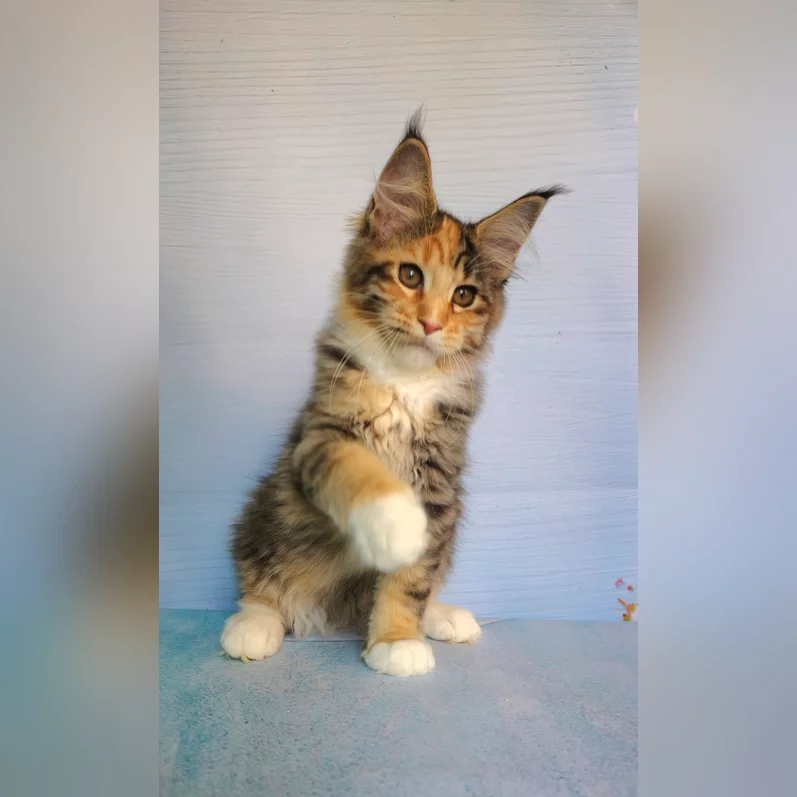
Spotting Dental Problems Early
Dental health is very important for Maine Coons, who are predisposed to dental problems more than most breeds. Spotting issues early on can help keep your cat comfortable and prevent expensive trips to the vet. Consistent care, in addition to proactive dental detection, will go a long way in helping your Maine Coon of any age have a perfectly healthy mouth!
Here are the most important signs to look for as you keep an eye on your cat’s oral hygiene.
Recognize Bad Breath (Halitosis)
Though a cat’s breath isn’t supposed to smell minty-fresh, extremely bad breath can be a sign of underlying dental disease. Persistent bad breath, or halitosis, is usually the result of plaque accumulation that may cause gum disease or infections.
Because Maine Coons are the type to curl up in your lap, bad breath can be a major detractor from their loving disposition. Cleaning your cat’s teeth on a regular basis will help remove odors. It very much lowers the risk of periodontitis, a widespread and preventable disease.
Regular brushing not only leads to better oral health, but it can help prevent 80% of anticipated dental issues.
Observe Changes in Eating Habits
Your Maine Coon could change their food habits if they have dental discomfort. Look for symptoms such as chewing more slowly, only chewing on one side of the mouth or rejecting hard food. These habits could be a sign of dental caries, gingivitis, or other dental diseases.
With spotting made easy, you can catch these concerns early on and avoid costly and invasive dental work in the future. Regular check-ins at a dental office, alongside good home care, are a one-two punch to keep your mouth healthy for life.
Check for Excessive Drooling
While some drooling is normal, an increase in saliva production may indicate oral pain. Dental infections, abscesses or loose teeth are usual suspects.
If you find that your Maine Coon has started drooling more than usual, it’s a good idea to make a veterinary appointment. These risks are reduced with regular dental cleanings and brushing, helping to ensure that your cat’s mouth stays healthy and happy.
Look for Inflamed or Bleeding Gums
Red, swollen, or bleeding gums are indicator signs of gingivitis or advanced periodontal disease. When not properly treated, these issues can worsen, leading to discomfort as well as potential tooth loss.
Make it a habit to check your cat’s gums with regular care. Leading your dog to brush their teeth regularly will avoid gingival inflammation and make expensive treatments unnecessary in the future.
Note Pawing at the Mouth
Oftentimes, pain and discomfort can be spotted by observing your dog’s behavior, such as frequent pawing/scratching at the mouth. Such behavior may be due to the presence of cavities, oral injuries, or infections.
A veterinarian is the only one able to truly perform a thorough dental exam to avoid such fatal flaws. With prompt attention, your Maine Coon can enjoy a long and healthy life free of dental issues.
Daily Dental Care Routine
Keeping Maine Coons teeth clean and promoting good oral health habits will go a long way towards keeping your kitty healthy and happy. Intimidatingly huge, but sweet as pie, Maine Coons are fascinating cats. In fact, they require very specialized dental treatments to prevent them from developing debilitating oral conditions.
Daily dental care helps prevent the painful disease of periodontal, which in turn helps keep your cat happy and healthy for years to come! Here, we describe the best practices and products to help keep their teeth clean and their mouths healthy.
1. Brushing Techniques for Maine Coons
Daily brushing is the foundation of good dental care. Beginning with young kittens will make the dental care a usual part of their routine as they mature, suggests Dr. Tonya Cooksey, DVM. For cleaning, you’ll want a soft-bristled toothbrush made for use on cats with feline-safe toothpaste, as both are gentler on their gums.
Start the process by keeping the brush introduction slow, so your Maine Coon can smell and check the brush out. Make small circular motions with the brush, concentrating on the outsides of teeth, where plaque tends to accumulate. With senior cats who are a little more ornery, brushing a few times a week is still effective.
2. Best Dental Care Products
Only products accepted by the Veterinary Oral Health Council (VOHC) have demonstrated through laboratory and/or clinical testing to be effective at reducing the severity of periodontal disease. Seek out VOHC-approved toothpaste, toothbrushes, and dental wipes.
Dental gels are a great alternative for cats that battle against traditional brushing. They have a little bit of give, so you can easily maneuver them directly onto their teeth and gums. Maine Coon owners do well to choose products with a well-researched history of safety and efficacy for the best results.
3. Dental Diets and Treats
Crunchy dental treats and specially formulated dental diets work wonders for oral health. These products are meant to remove plaque and biofilm from teeth, said Dr. Cooksey. Popular choices are dry kibble with bigger, crunchier pieces that prompt more chewing.
Always check with your veterinarian to determine the best diet to meet your Maine Coon’s individual needs.
4. Water Additives for Oral Health
Water additives provide a simple method for enhancing your pet’s oral care routine. These gel-like products, which you dissolve into your cat’s water bowl, inhibit the growth of harmful bacteria in the mouth while controlling bad breath.
Choose VOHC-approved additives. Finding additives that are safe and effective can be daunting.
5. Maintaining Your Cat’s Oral Health
Regular veterinary visits are important in keeping an eye on your Maine Coon’s dental health. Feline concerns for gum health include juvenile gingivitis and stomatitis, particularly in 6-9 month old cats.
With early intervention, we can prevent more severe complications. Establishing a combination of brushing, diet, and professional care significantly reduces the risk of dental disease, which affects up to 90% of cats by age four.
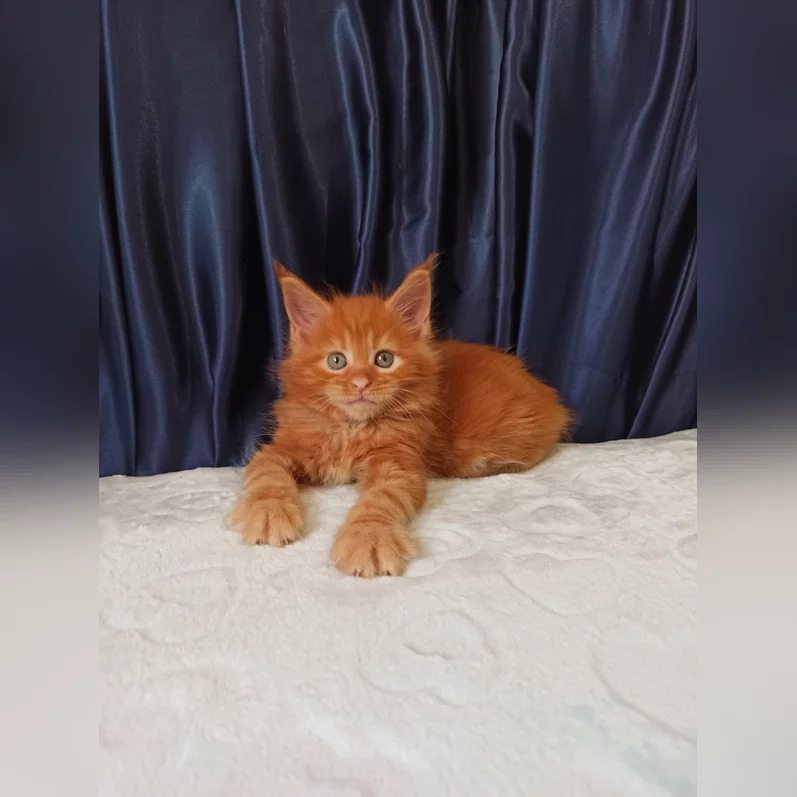
Diet and Genetics Impact
Maine Coon, with their impressive mane and friendly disposition, often considered a hardy breed, Maine Coons are a favorite across the world. Just like with humans, their dental health condition is impacted through balancing their dietary choices and genetic factors. Understanding these factors is key to helping their teeth stay healthy and beautiful for life.
Role of Diet in Dental Health
Diet is one of the biggest factors in keeping Maine Coons’ dental health in check. Cats whose diets consist primarily of soft, wet food may be more prone to plaque and tartar accumulation. This can set them up for a lifetime of oral health dangers.
That’s because soft food misses the natural cleaning abrasion that comes from chewing – which cleans teeth while you bite through fiber-rich food. Adding in dry kibble of superior quality or dental chews made to help improve oral health are great options. Raw diets that include meaty bones (sized appropriately to prevent choking) can help mimic the natural cleaning process cats would experience in the wild.
The quality of a Maine Coon’s overall health is directly linked to its diet as well. Being overweight can decrease a pet’s life by as much as two years. It causes the onset of arthritis at a significantly earlier age than would occur in a healthy weight individual.
A balanced diet not only supports dental health but prevents conditions like obesity, which can indirectly affect oral care routines due to reduced activity levels.
Genetic Predispositions to Dental Issues
While diet is important, genetics are underexamined factors in Maine Coon dental health. Like other purebred cats, Maine Coons can be prone to inherit particular weaknesses. For instance, hypertrophic cardiomyopathy (HCM), a heart condition, is found in roughly 30% of Maine Coons.
Dental systemic health issues like HCM can make dental procedures complex. These serious complications are often posed due to the risks of anesthesia. Through the use of DNA testing, we have more information than ever to recognize genetic predisposition.
We are seeing incredible advances in this field that make early detection of these inherited conditions possible to ensure proactive care. While most domestic cats have type A blood, Maine Coons often have type B or AB, influencing medical treatments like transfusions.
Nutritional Needs for Healthy Teeth
Amino acids such as taurine – critical for overall health – are important for gum and dental health. Deficiencies in taurine previously resulted in diseases like dilated cardiomyopathy (DCM).
Today’s premium quality commercial cat foods provide ample taurine, eliminating this danger. A diet abundant in lean proteins and other vital nutrients provides hard teeth. It even reduces the risk of gum disease.
Professional Veterinary Dental Care
Preventing Maine Coons’ teeth from becoming a serious health risk takes more than at-home care. It requires professional veterinary dental care as well. Maine Coons are famous for their robust health. Even with this protection, they are not immune to dental disease such as periodontal disease and stomatitis, as are other breeds. Regular veterinary care is vitally important to prevent dangerous complications and to treat existing conditions safely and properly.
1. Importance of Regular Check-ups
Regular dental examinations are key to early detection of emerging problems. Just like with dogs, research finds that 8 of 10 cats will have gum disease during their lives. Maine Coons, with their bigger jaws and teeth, certainly shouldn’t be left out.
At these annual appointments, vets check for signs of inflammation and plaque accumulation. They look to diagnose more serious conditions like stomatitis, which leads to widespread inflammation of a cat’s gum tissue and oral cavity. Detecting these problems early will ensure treatments are most effective and minimally invasive.
For instance, a cat showing minor symptoms can benefit from preventive measures such as polishing or scaling, avoiding the need for more extensive interventions down the line.
2. Professional Cleaning Procedures
No matter how much you brush them at home, some tartar that must be removed in a veterinary setting just can’t be brushed away. The procedures always begin with ultrasonic scaling to remove bacteria and calculus below the gumline.
Second, polishing removes the rough surface created by tartar and cavities to further prevent plaque from adhering to teeth. Sedation enables the cat to be truly comfortable as well as making it possible for the veterinarian to do an extraordinary job cleaning.
This breed tends to have larger teeth where a lot more buildup can occur. Regular dental cleanings are vital to the overall health of their mouths and keeping infections and abscesses from spreading. Professional veterinary dental care is especially important if your pet is showing signs of gingivitis, which is the first stage of periodontal disease.
3. When to Consider Dental X-rays
Dental X-rays allow a complete evaluation of the teeth and surrounding structures, allowing veterinarians to identify hidden diseases. Cats with chronic inflammatory tooth resorption or suspected root fracture require further imaging.
That further makes the case by validating the scope of their problem. In cases such as Gabriel, a cat with severe stomatitis, radiographs are essential in determining the need for full mouth extractions. This treatment, while intensive, has demonstrated the ability to heal 60% of cats afflicted with stomatitis.
After two and four weeks of follow-up care, there was a significant decrease in inflammation. It impressed with better eating, underscoring the power of this combo.
4. Veterinary Treatments for Dental Disease
Approach to veterinary treatment depending on diagnosis can include treating pain, infection, or supporting surrounding tissues, depending on clinical need. For stomatitis, you can’t just treat the concurrent conditions either – infections or change of diet – only go so far.
Full mouth extractions are often advocated as a cure-all, even in cases like Gabriel’s. Although recovery requires dealing with some early mild inflammation for the first few weeks, most cats adjust quickly and eat more comfortably within a matter of weeks.
For more minor issues, antibiotics, anti-inflammatories, or focused dental care regimens can be enough. Schedule of regular follow-up at 2 and 4 weeks. These periodic check-ins make sure treatment is working and the cat’s health is getting back in line.
Environmental and Lifestyle Factors
Environmental and lifestyle factors play an important role on the dental health of Maine Coon cats. It’s important to think through these factors for their long-term health. These aspects not only shape their overall well-being but influence their oral care needs, making it essential for owners to understand and address them effectively.
Impact of Indoor vs. Outdoor Lifestyle
The lifestyle of a Maine Coon cat – whether they live indoors, outdoors, or a mix of both – affects their dental health in various ways. Free-ranging outdoor cats continuously ingest grass and kill dozens of small animals. This natural behavior goes a long way in helping to keep their teeth clean!
Additionally, exposure to the outside environment can heighten the likelihood of sustaining a dental injury or infection. For example, chewing dangerously on hard objects like sticks or bones risks cracked or fractured teeth.
By comparison, indoor Maine Coons are less likely to experience this level of damaging texture on their teeth. It’s easy for plaque and tartar to form – it requires proper management of their diet and at-home oral care routines.
Veterinary recommendations suggest that owners can help keep indoor cats’ teeth clean and healthy by offering dental-friendly toys or treats that recreate the experience of chewing on prey. It’s important to stimulate their hunting instincts through daily play sessions. Catching and chasing interactive toys helps improve their oral and physical health.
Effects of Chewing Habits
Chewing, which is an innate behavior for Maine Coons, is so important to their dental health. Cats who enjoy a good chew will have less plaque buildup. Providing dry kibble with a texture designed for dental care or offering safe chew toys can help maintain their oral hygiene.
Maine Coons make great playmates as they are active and inquisitive cats. They may gnaw on other odd items such as wires or clothing, endangering their teeth. It is important to always supervise their chewing and redirect them to the proper chews.
Maine Coons are naturally attracted to water. This interest can drive them to gnaw on things around water supplies – such as sinks and water bowls. It is the owner’s responsibility to make sure these materials are safe to avoid inadvertent harm to teeth.
Managing Stress and Its Effect on Oral Health
Physical stress can impact the overall physical health and dental health of Maine Coons. Cats in distress are more prone to teeth grinding, loss of appetite, and behaviors that result in destructive chewing habits expressing themselves through their mouth.
Stressors might include everything from a change in their surroundings to being under-stimulated. Originally bred to be hardy outdoor workers, Maine Coons are lively cats. They require ample playtime to meet their natural, predatory desire to seek and discover. Without this, they can form stress-related oral habits.
Providing a predictable living environment with reliable routines, combined with regular, positive, interactive playtime, can lower anxiety in dogs and their humans. Unlike Maine Coons, who are hardy creatures, Maine Coons do best in situations that provide for their physical and mental well-being.
Owners need to be prepared to bring in calming aids, such as pheromone diffusers, when necessary. This will keep their cat healthy overall, as well as improve their dental health.
Preventive Measures for Oral Health
Taking preventive measures to keep a Maine Coon’s teeth healthier and their mouth happy is important for their quality of life. Dental problems are common in cats. Research reveals that 80% of cats have some form of dental disease by age 3. By prioritizing early, regular care we can give our beloved feline friends the healthier, happier, and longer lives they deserve.
Start Dental Care Early
The building blocks of preventive oral health measures should start in the kitten stages of life. If you can begin a dental care routine with your Maine Coon when they are young, ideally between 6 – 9 months, that would be best. This contributes to avoiding gum problems that may occur at this fundamental phase of advancement.
When it comes to preventive measures, the early signs of gum disease, like minor puffiness around the gums, it’s time to begin brushing. Using cat-specific toothbrushes and pet-safe toothpaste is essential, as human products can be toxic. Products displaying the VOHC (Veterinary Oral Health Council) Seal are proven to reduce plaque and tartar accumulations.
They reduce the risk of periodontal disease greatly. These tools are low-stress but high impact, which helps keep the process less stressful for the feline and their new pet parent.
Consistent Home Care is Key
Moreover, regular brushing is one of the best preventive measures to help your Maine Coon keep their teeth and gums healthy. Brushing at least two to four times a week will help you keep plaque in check, lowering your risk of tartar buildup.
For an extra layer of maintenance, plaque-scraping tools make it easy to get tough-to-reach plaque off in between vet visits. Treats and dental chews made for felines are another great preventative measure to incorporate into their routine.
To be sure they’ll work, always look for products with the VOHC Seal. Being proactive, persistent, and comprehensive in these approaches will prevent serious complications, including stomatitis. This is particularly crucial for cats with FIV or other immunocompromising conditions.
Monitor for Changes Regularly
Keeping an eye on your Maine Coon’s eating habits, for example, will alert you to any issues quickly, creating a first line of defense against oral health issues. Drooling, not wanting to eat, or pawing at the mouth could signal that something hurts.
Regular veterinary checkups are equally important. Professional cleanings are important because they remove plaque and tartar built up on teeth that may be missed with home care.
Dental Anatomy and Overall Health
Clearly, it is critical to the overall health and well-being of Maine Coons to understand their dental anatomy and health. Their teeth are crucial to their quality of life – not just impacting their ability to eat, but leading a healthy diet and warding off other health issues. Meeting their dental needs means identifying risks and knowing what to do before issues arise to maintain a healthy mouth.
Read on to learn the importance of oral health care for their overall health.
1. How Dental Health Affects Nutrition
Just like the powerful Maine Coon cat, flesh-tearing incisors improved tear-and-chew function. This is significant because keeping kids’ mouths healthy goes hand-in-hand with keeping kids nourished. Once dental conditions develop, such as inflammation of the gums or pain in the tooth, it can get difficult to feed them a well-balanced diet.
This can result in diminished food intake, unintentional weight loss or, ultimately, even a lack of vital nutrients. These problems with the gums usually first become evident between 6-9 months of age in kittens. This is an especially important period as they move from primary dentition to permanent dentition.
This period can be painful for them, preventing regular chewing on firm food. Part of keeping them fit and healthy involves keeping their mouths clean too – regular tooth brushing can effectively help control the formation of plaque and tartar.
A diet with an oral health benefit – like kibble made to control plaque – all helps. Treats with the right formula – like CET Enzymatic Oral Hygiene Chews – can help enhance these efforts, leading to healthier teeth and gums.
2. Connection Between Oral Health and Systemic Diseases
Misaligned jaws can lead to systemic health issues. Dental problems in Maine Coons may occasionally indicate or contribute to systemic health concerns. Conditions like gum disease, for example, can be a signal of something happening within the body, such as infections or inflammation.
Approximately 2% of Maine Coons develop stomatitis, an inflammatory gum condition that is quite painful. This condition can severely impact their day-to-day life. Without treatment, the bacteria can move into the bloodstream.
This can dangerously compromise the health of vital organs like the heart and kidneys. Regular dental checkups from a veterinarian are important for catching dental infections before it’s too late.
By tracking symptoms like redness, swelling, or halitosis, we may be able to treat problems before they become significant. With regular monitoring, you can address potential oral health issues before they become serious, protecting your cat’s overall health.
3. Maintaining Overall Well-being
Dental care is a big part of keeping your Maine Coon healthy. Develop a reliable regimen with daily tooth-brushing, a healthy diet, and regular professional teeth cleaning. This proactive approach will reduce, if not eliminate painful conditions like gum disease and stomatitis.
Perhaps even more importantly is keeping an eye out for behavioral changes, like avoiding food or nearby trees to pawing at the mouth. These can be signs of pain and should raise an emergency alarm to us or an emergency animal hospital.
Remember that dental care is only part of your cat’s health care routine. Encourage good behavior by keeping your cat active and brushing regularly. Taking a holistic approach will increase your Maine Coon’s happiness and health.
It is concerned with their dental health as well as general health.
Addressing Specific Dental Concerns
Dental health is hugely important for Maine Coons, affecting their overall quality of life. This breed may be especially vulnerable to certain dental concerns, so routine care can be even more vital. Conveying awareness of these challenges and deploying targeted, comprehensive care can help enrich the lives of these young adults.
Managing Pain Associated with Dental Issues
Unfortunately, Maine Coons, like most other felines, are very likely to suffer from dental conditions including juvenile gingivitis and stomatitis. Juvenile gingivitis appears as redness or swelling along the gum line. Stomatitis leads to generalized immune-mediated inflammation along the mucosa of the mouth, often referred to as Inflammation Feline Chronic Gingivostomatitis (FCGS).
When left untreated, these conditions can lead to chronic pain and suffering, preventing cats from engaging in eating, grooming, and other activities essential to feline wellbeing. For advanced stomatitis, treatment nearly always includes removal of every tooth back of the upper and lower canine teeth. Medicine is viciously effective on the inflammation and the pain.
I know that sounds dramatic, but that’s really how it feels. For most moderate cases, vets will offer prescriptions for anti-inflammatory medications or foods that are gentler on the gums. Pain relief is very important during this time, and veterinarians may choose to prescribe pain medications as well in order to keep pets comfortable through recovery.
Post-Treatment Care After Dental Procedures
Maine Coons need extra consideration after dental treatment as it can take time for them to heal completely. After extractions, it is to be expected for cats to have some slight swelling or tenderness. This can help make eating more comfortable, and keeping them hydrated is just as crucial.
Frequent recheck appointments with the veterinarian help make sure the healing process is progressing as it should. VOHC approved products include effective dental rinses and gels. These products are effective solutions for managing oral hygiene during the recovery process.
Similar products significantly cut down plaque accumulation, keeping teeth cleaner and serving as a barrier to reinfection by secondary bacteria. The most important part is to provide a low-stress environment for the recovering feline, with little noise and activity so she can easily rest and recuperate.
Long-Term Dental Health Management
Long-term dental care is important for preventing issues from coming back. Research has shown that as many as 8 out of 10 cats have dental health issues, and Maine Coons are not immune. Removing dental grime daily through brushing – especially with a cat-friendly brush, like this well-rounded kit made with safe, non-toxic materials – makes a huge difference in reducing plaque.
VOHC-approved dental treats and chews work to fight periodontal disease. Regular veterinary dental exams, paired with these at-home measures, provide a strong front against potential oral health issues. With early intervention and regular preventive care, your child can enjoy a bright, healthy, pain-free mouth for many years to come!
